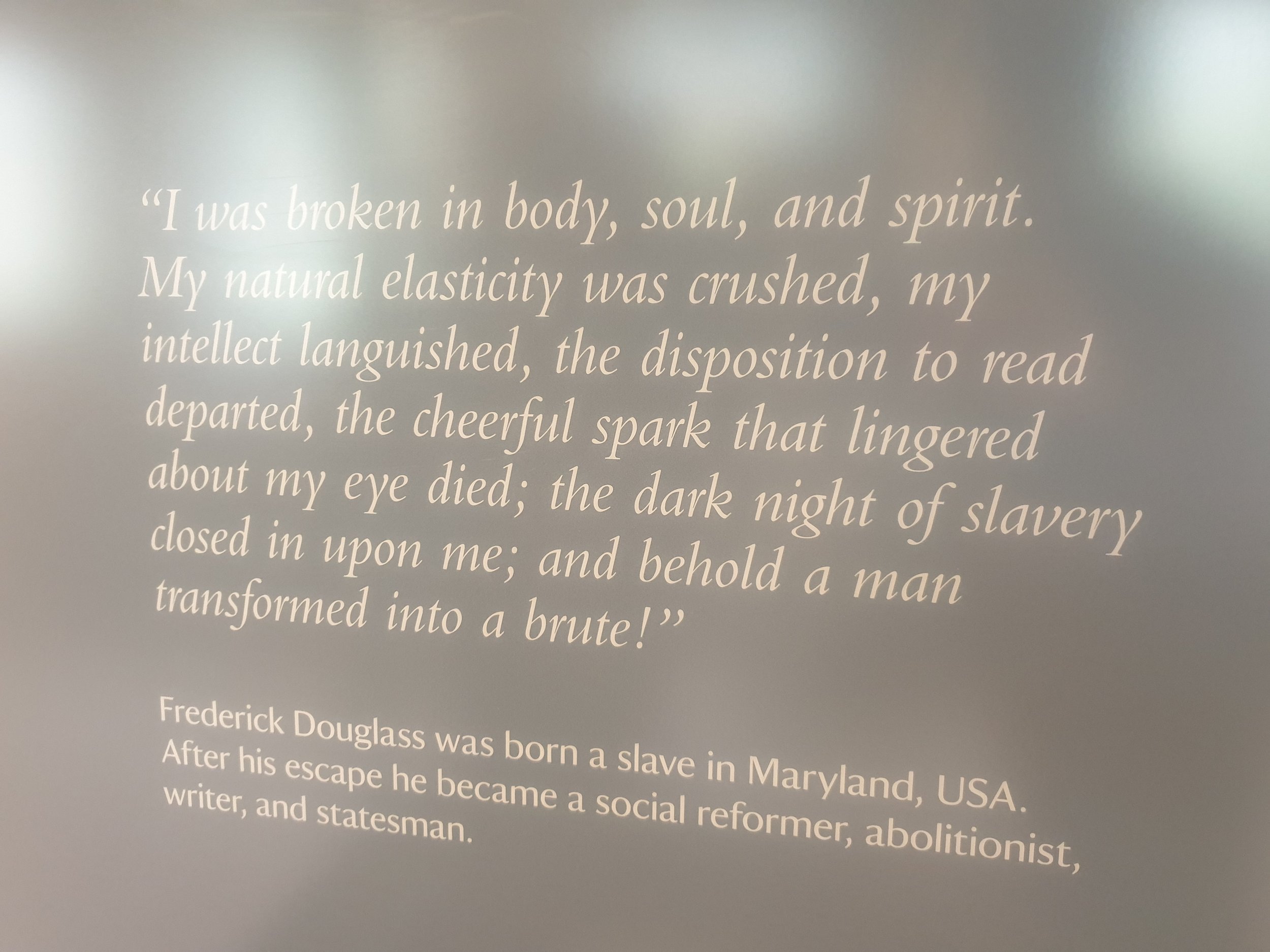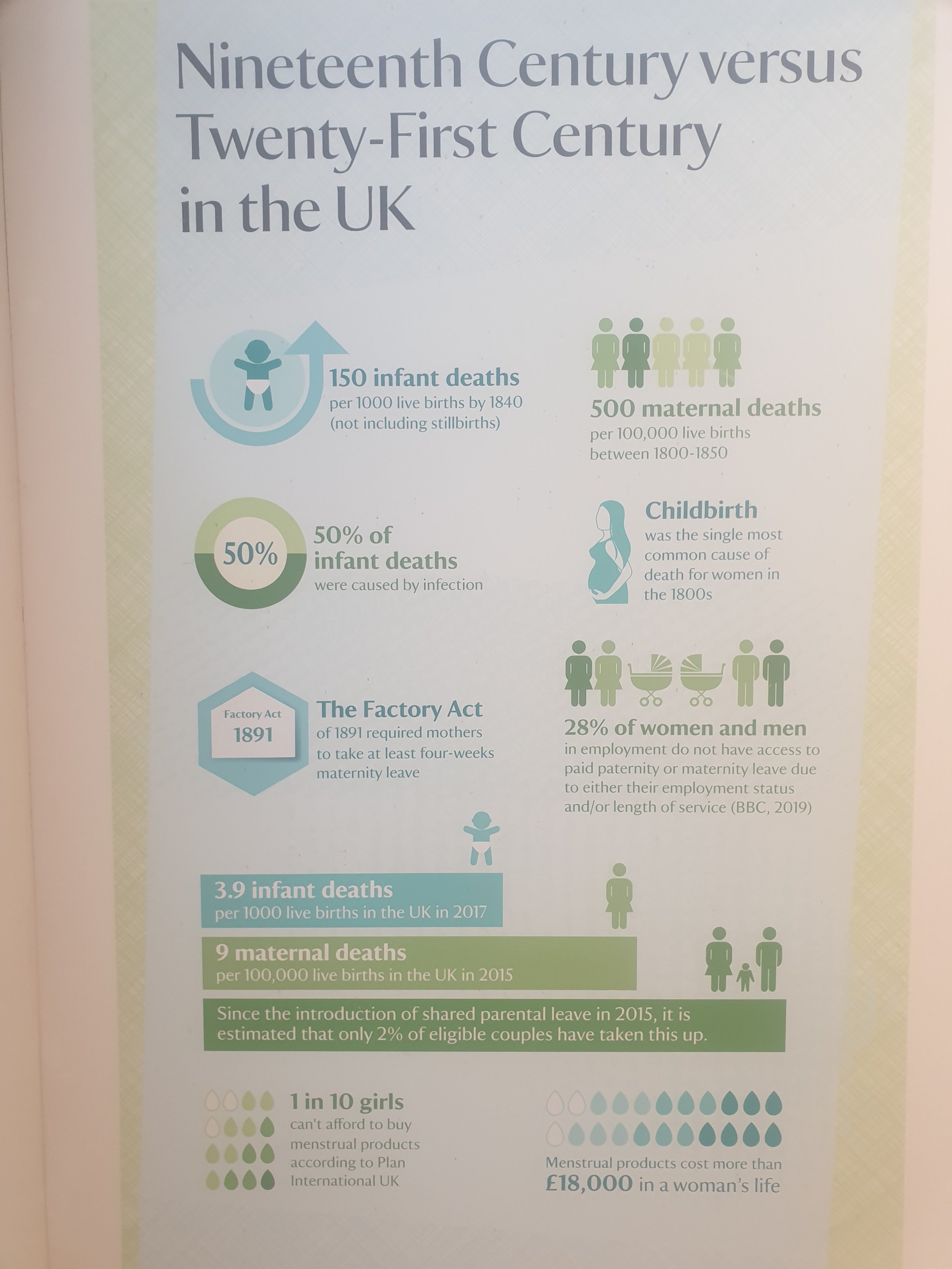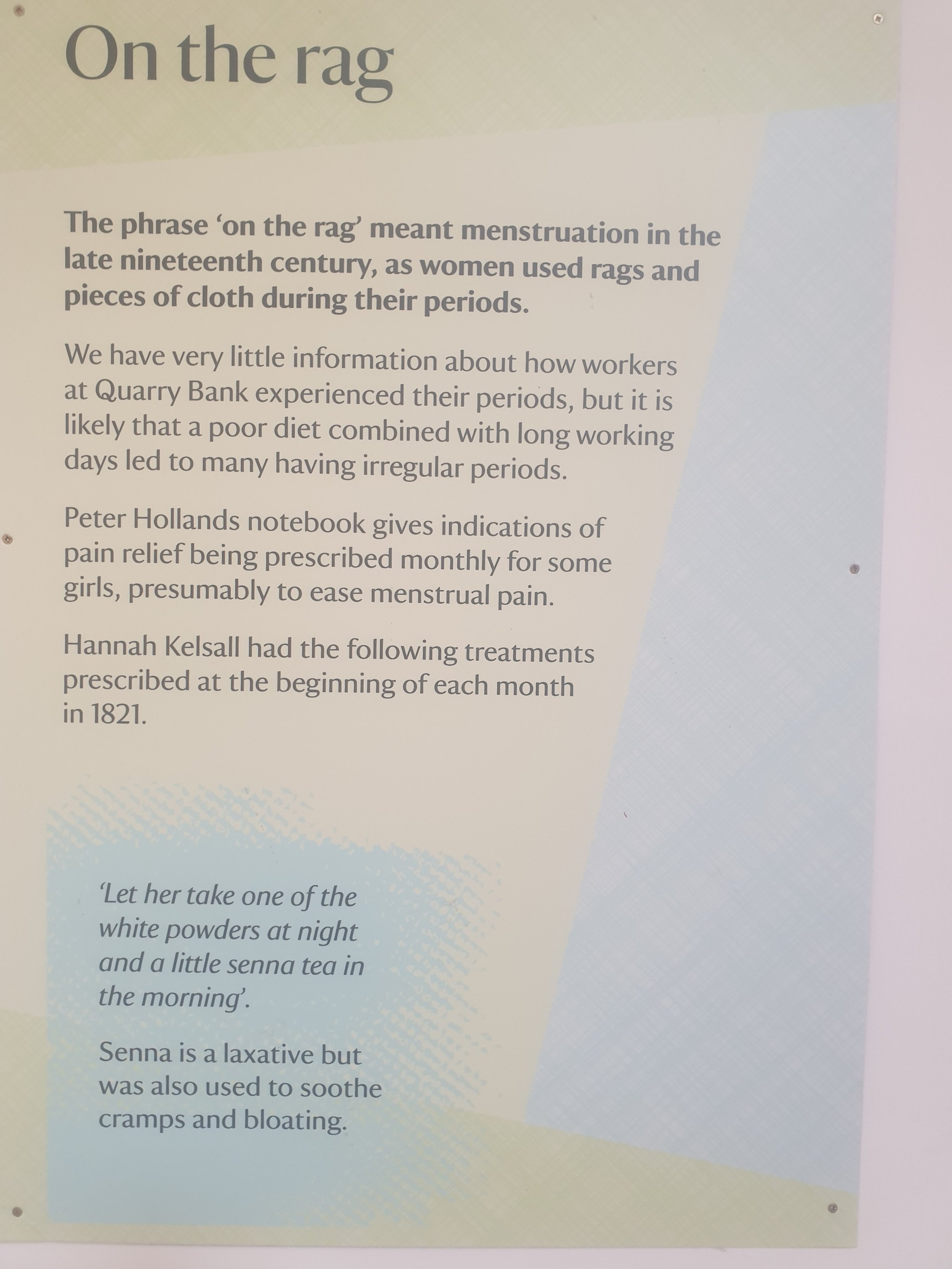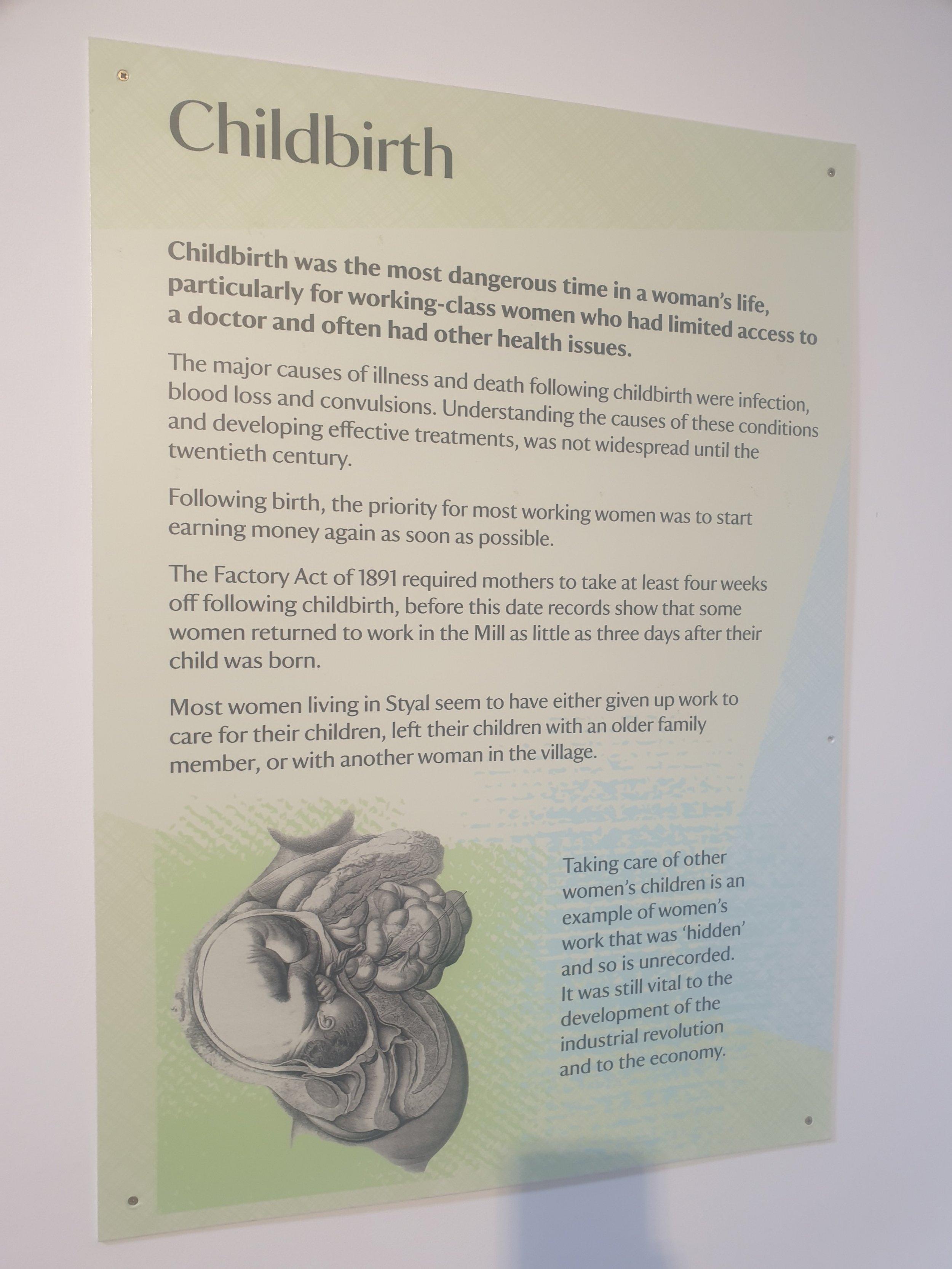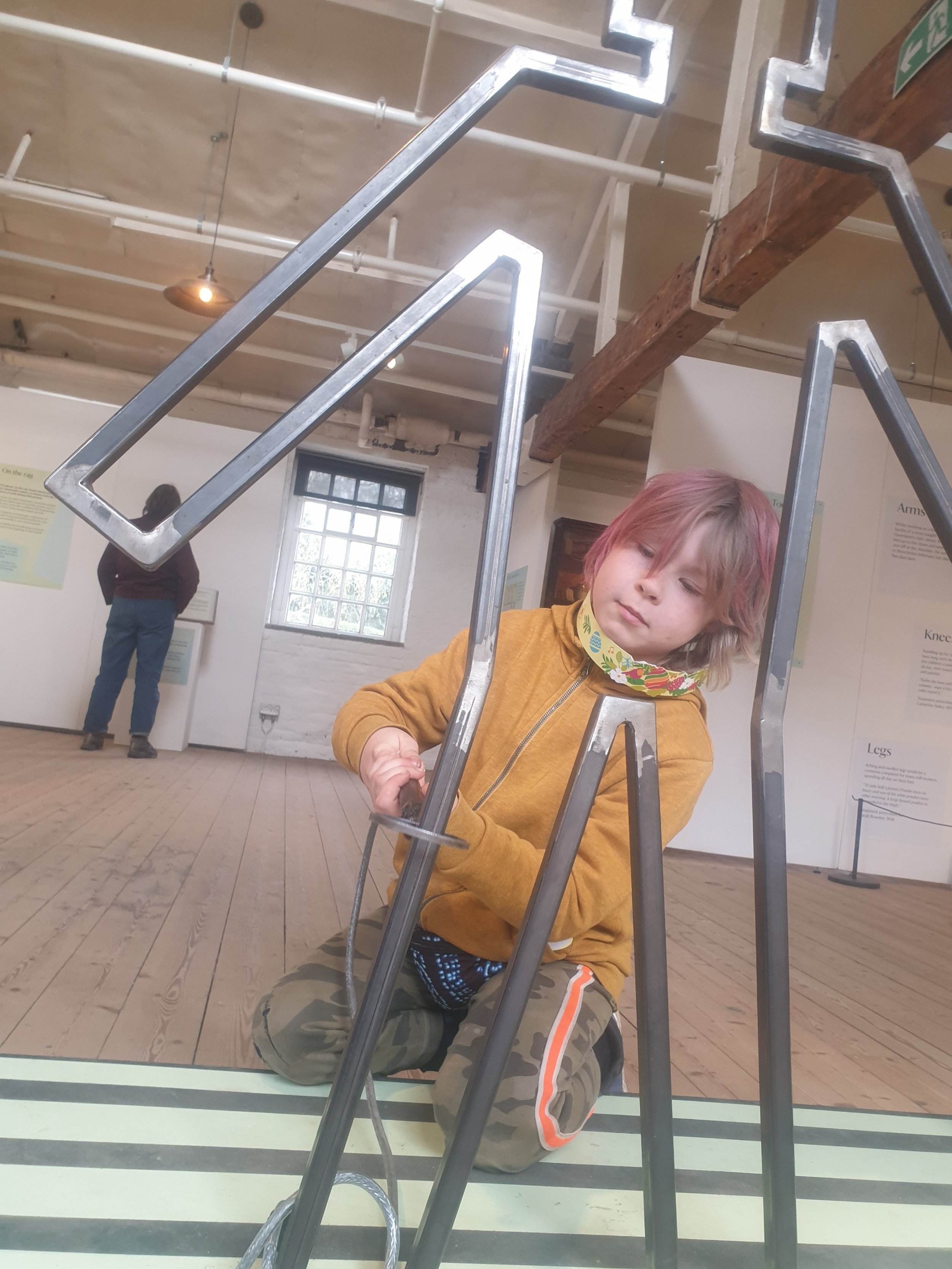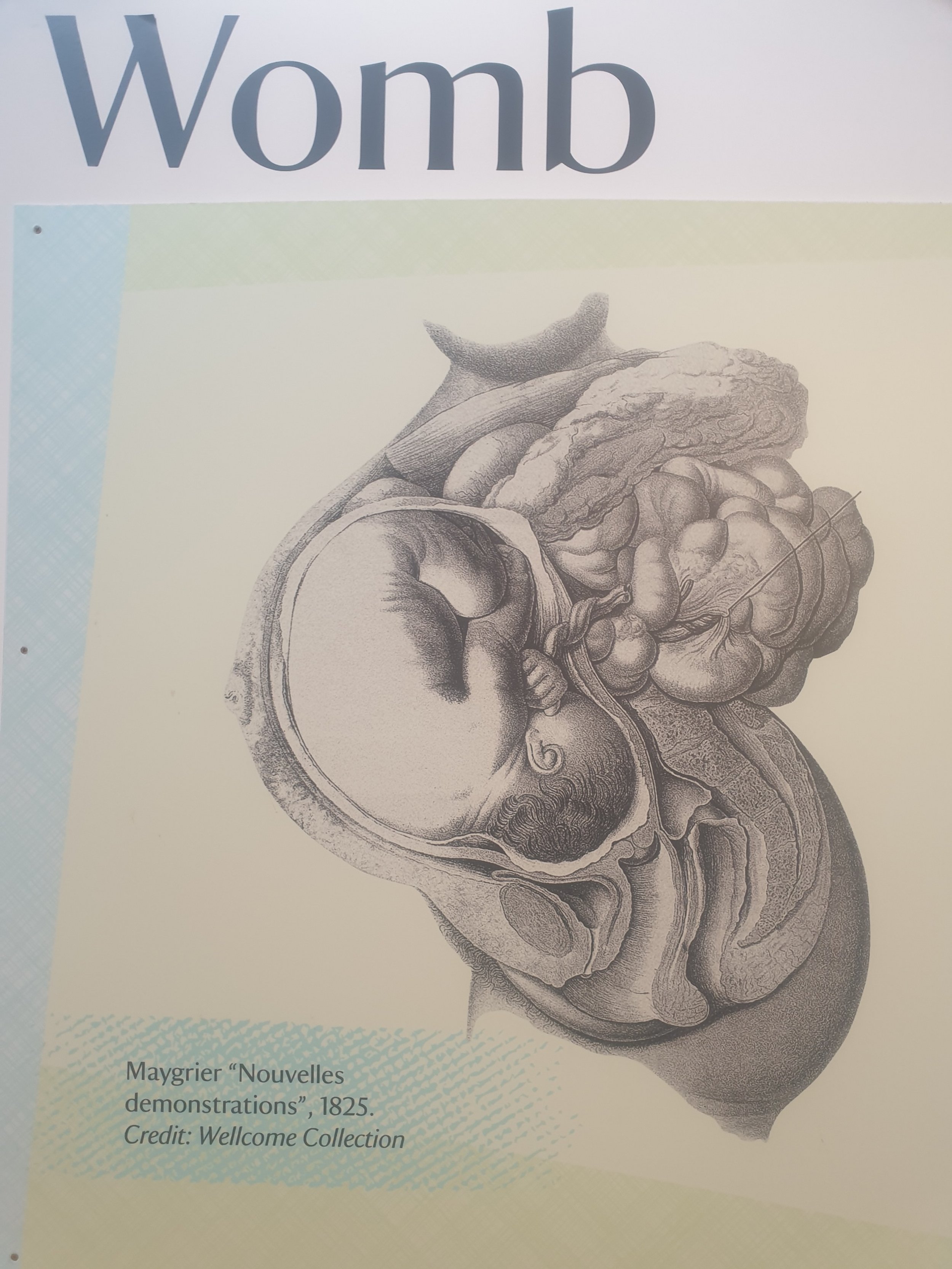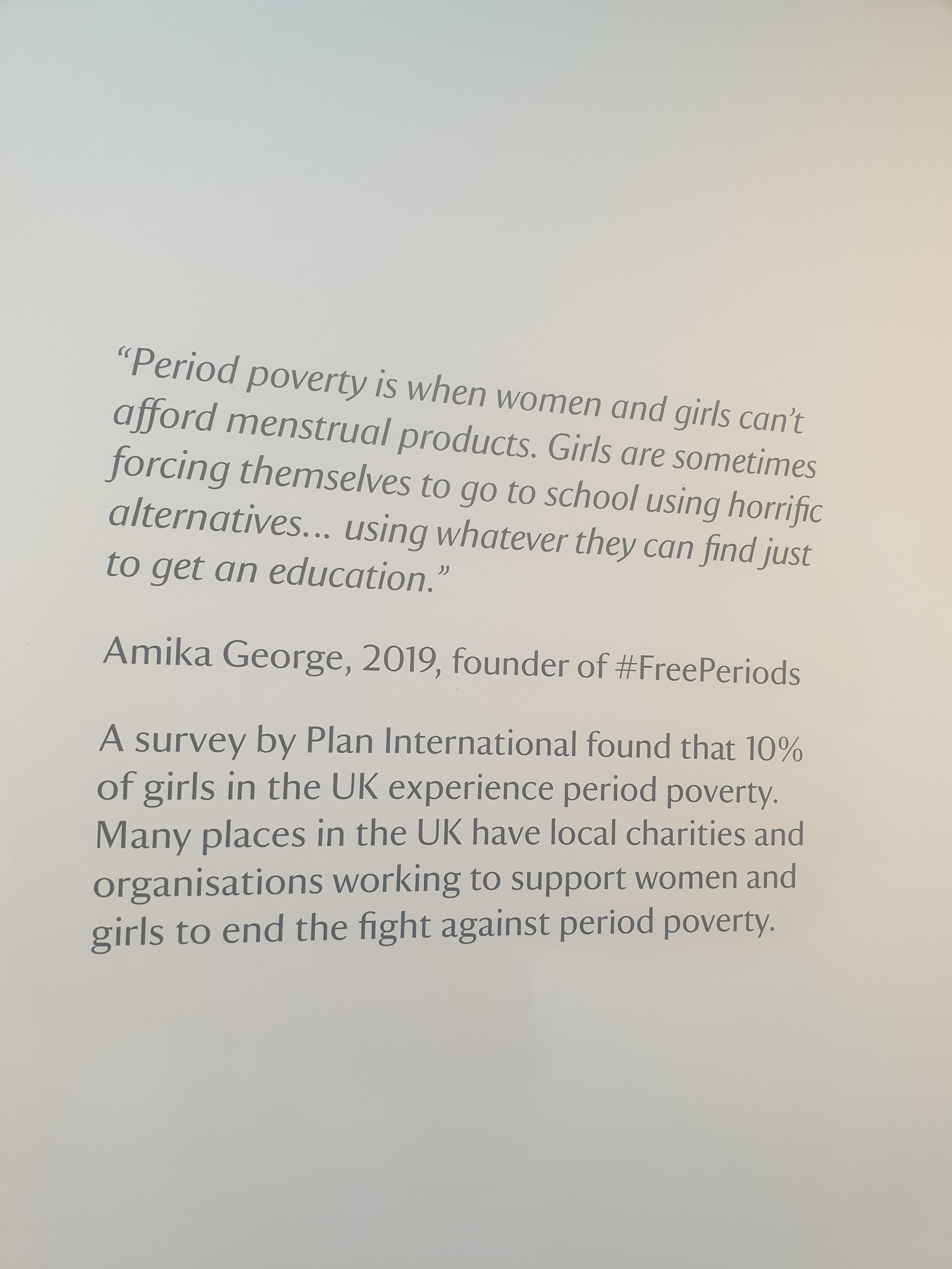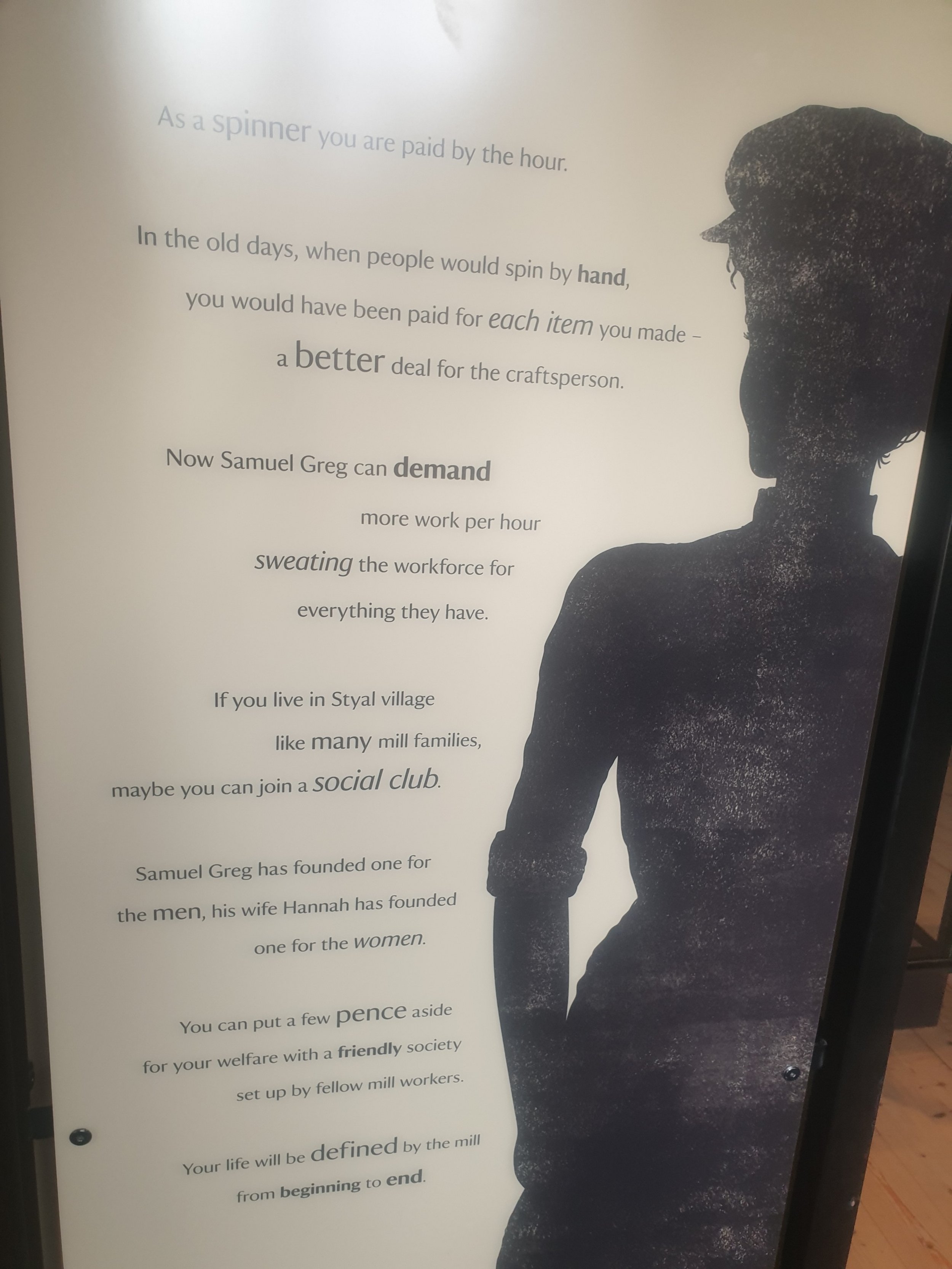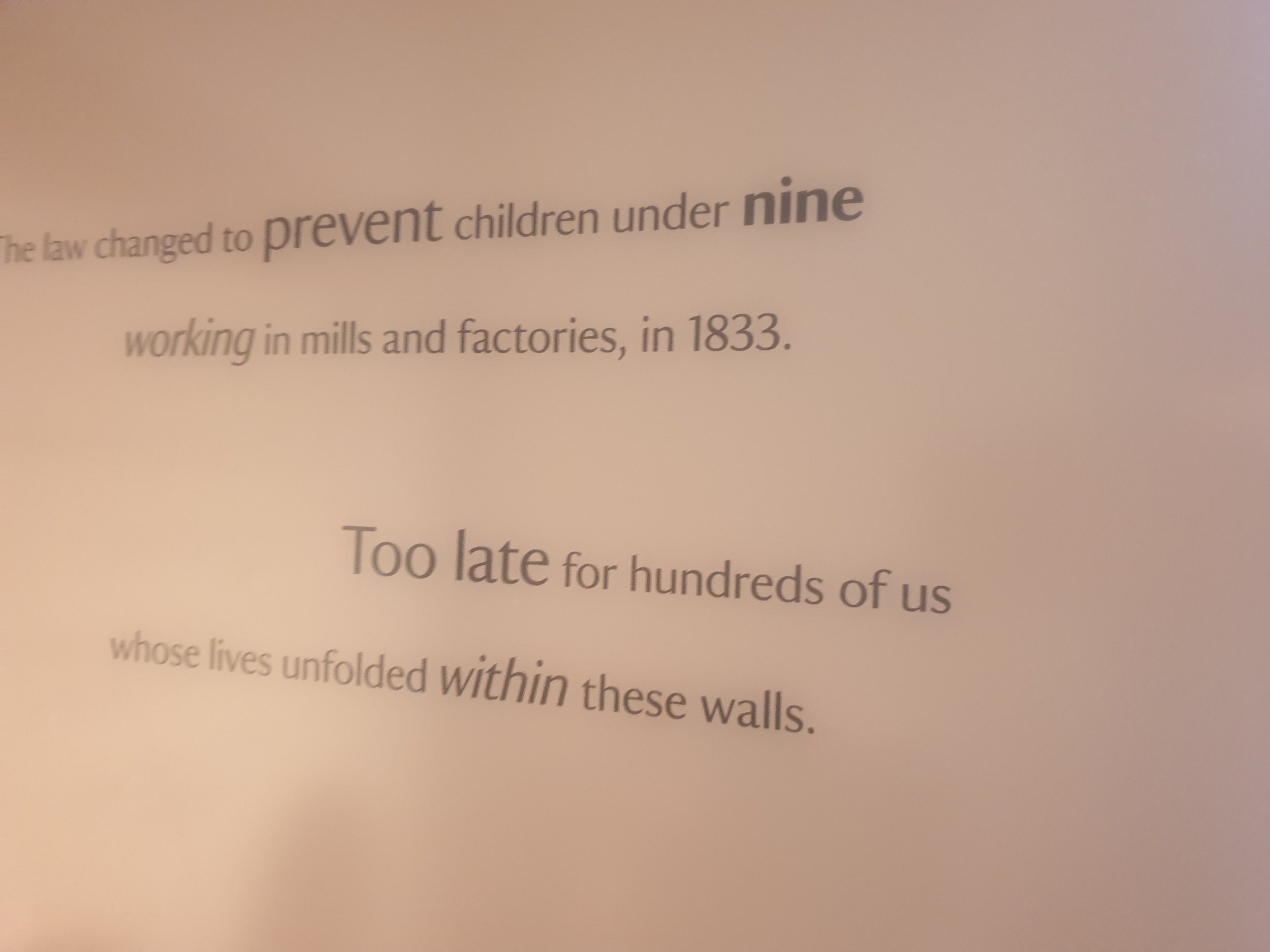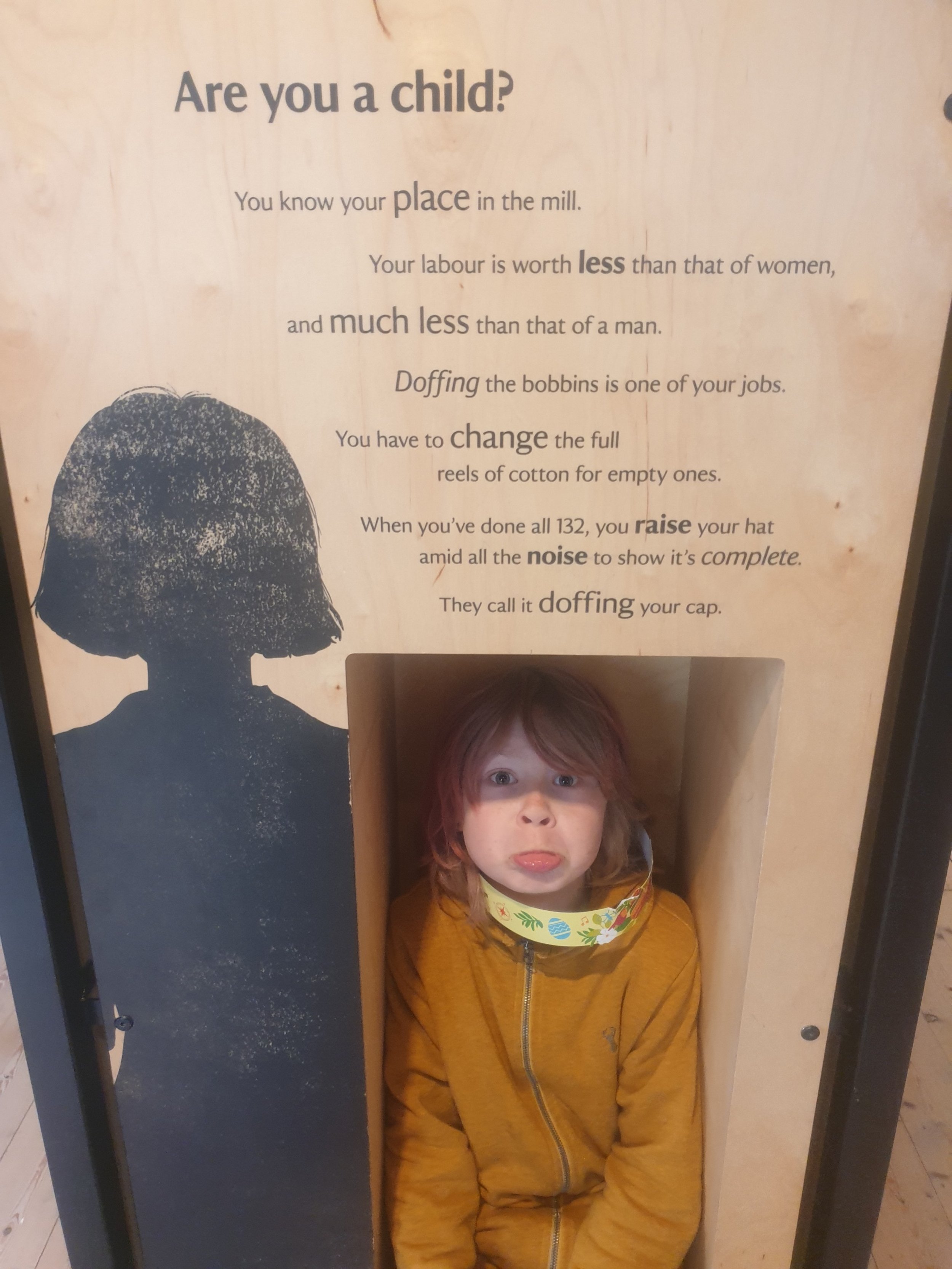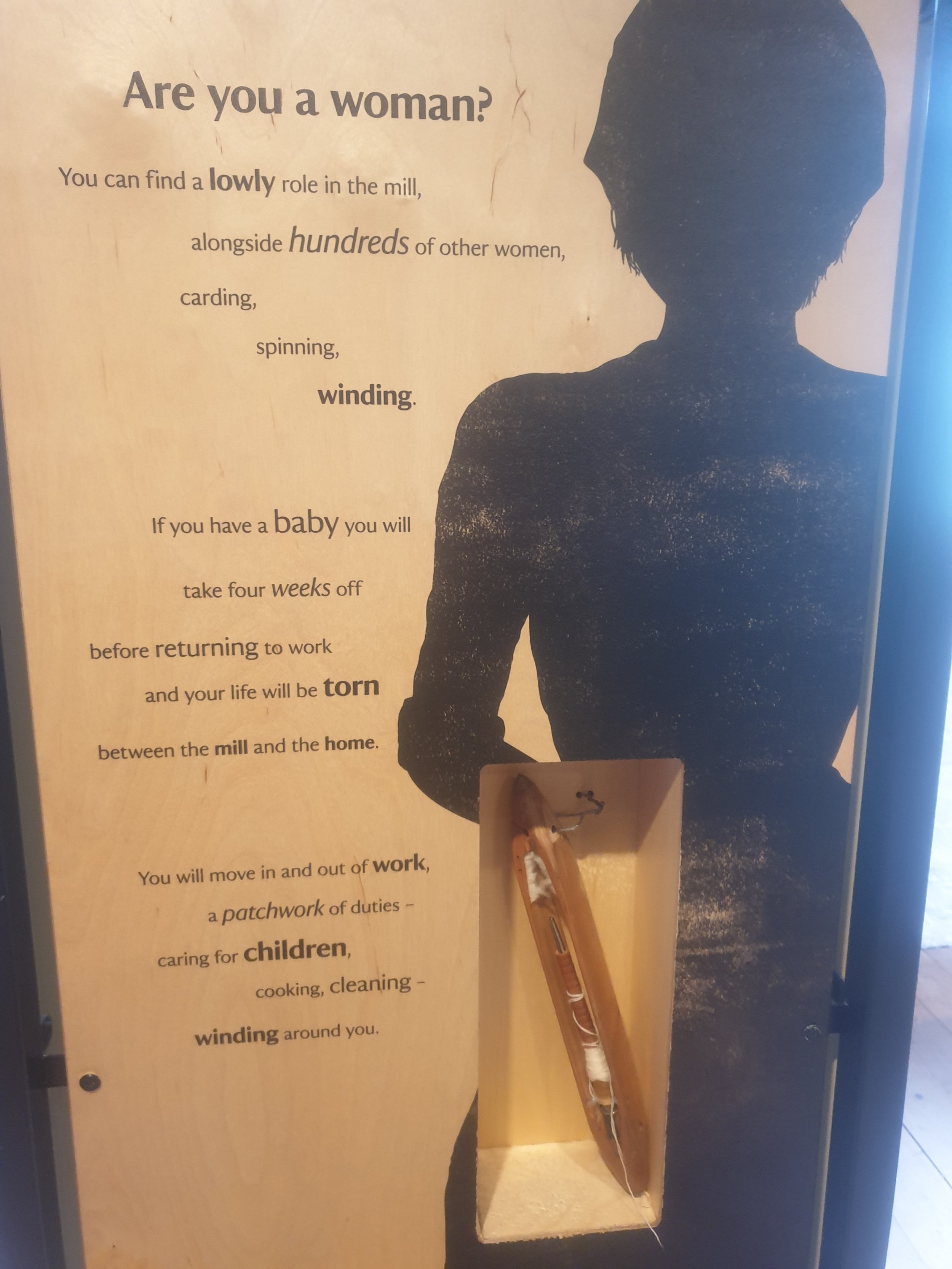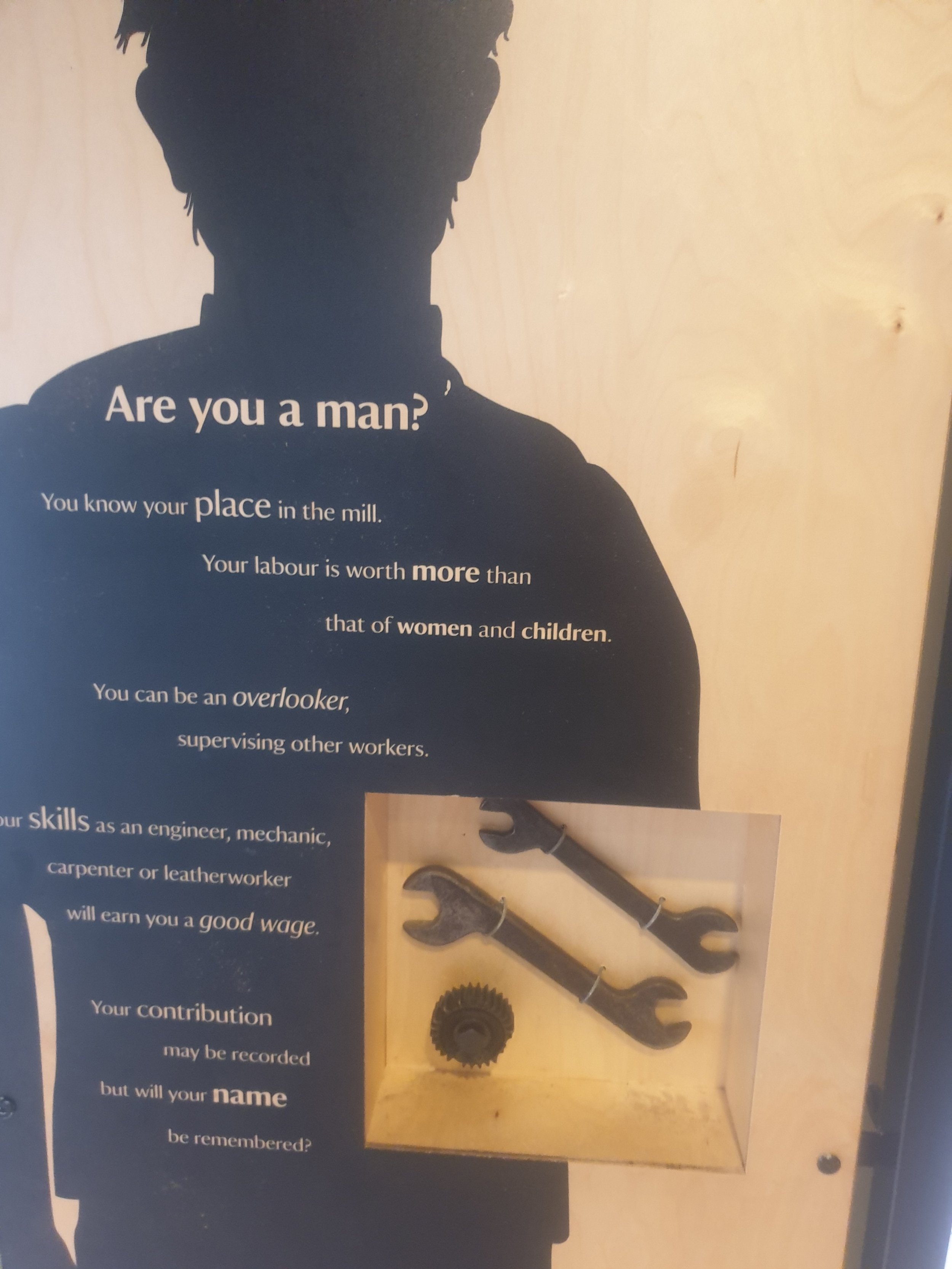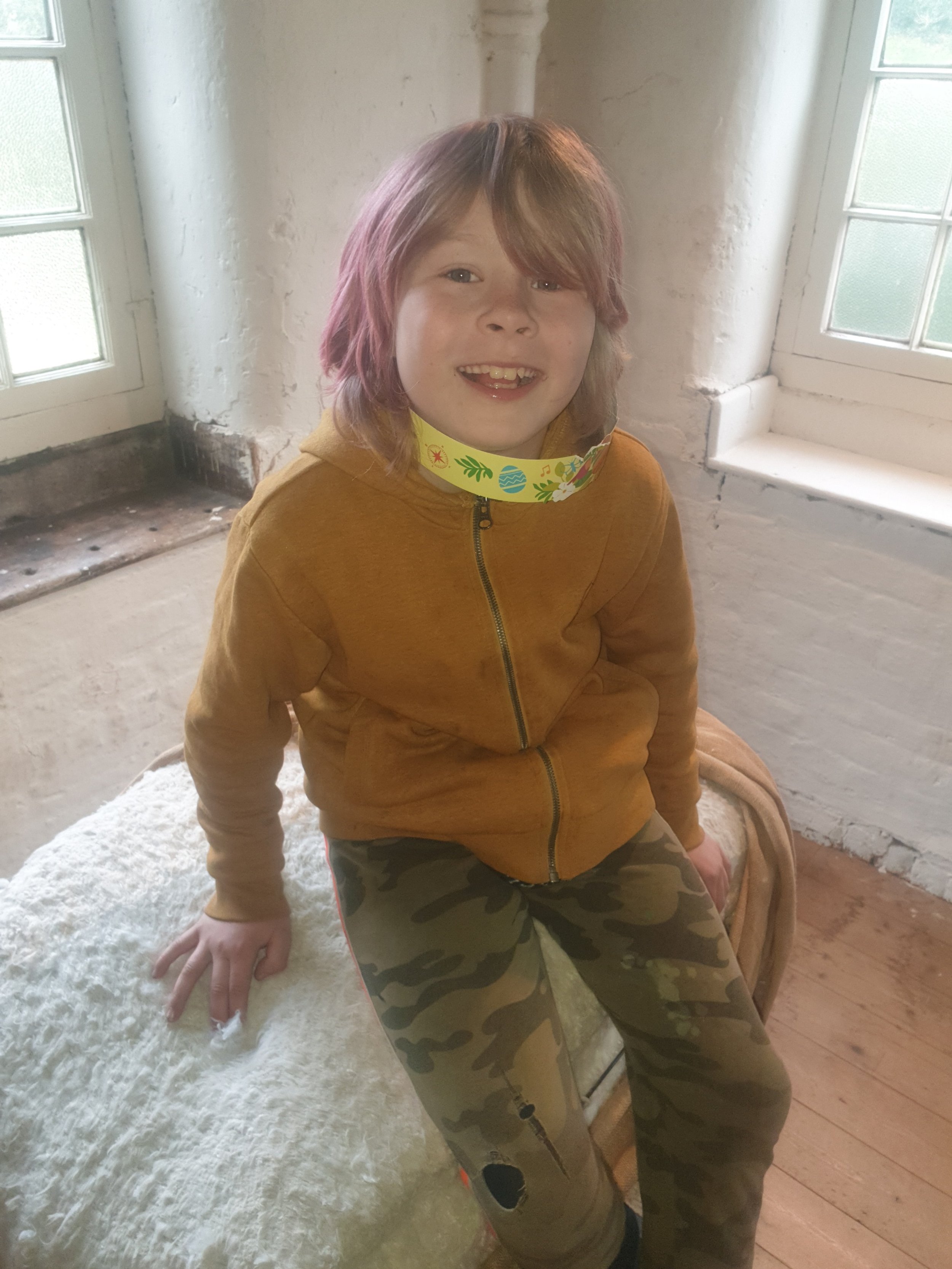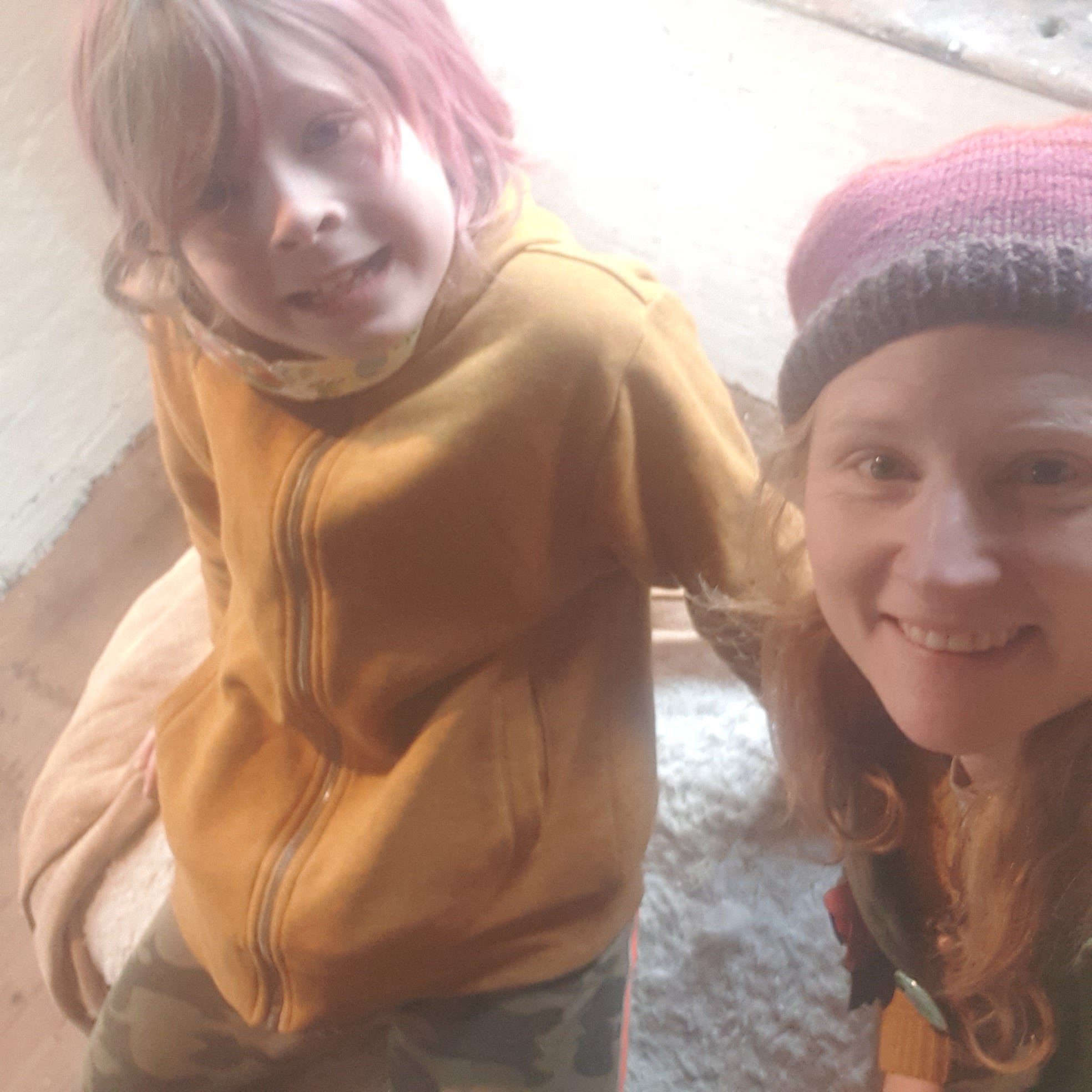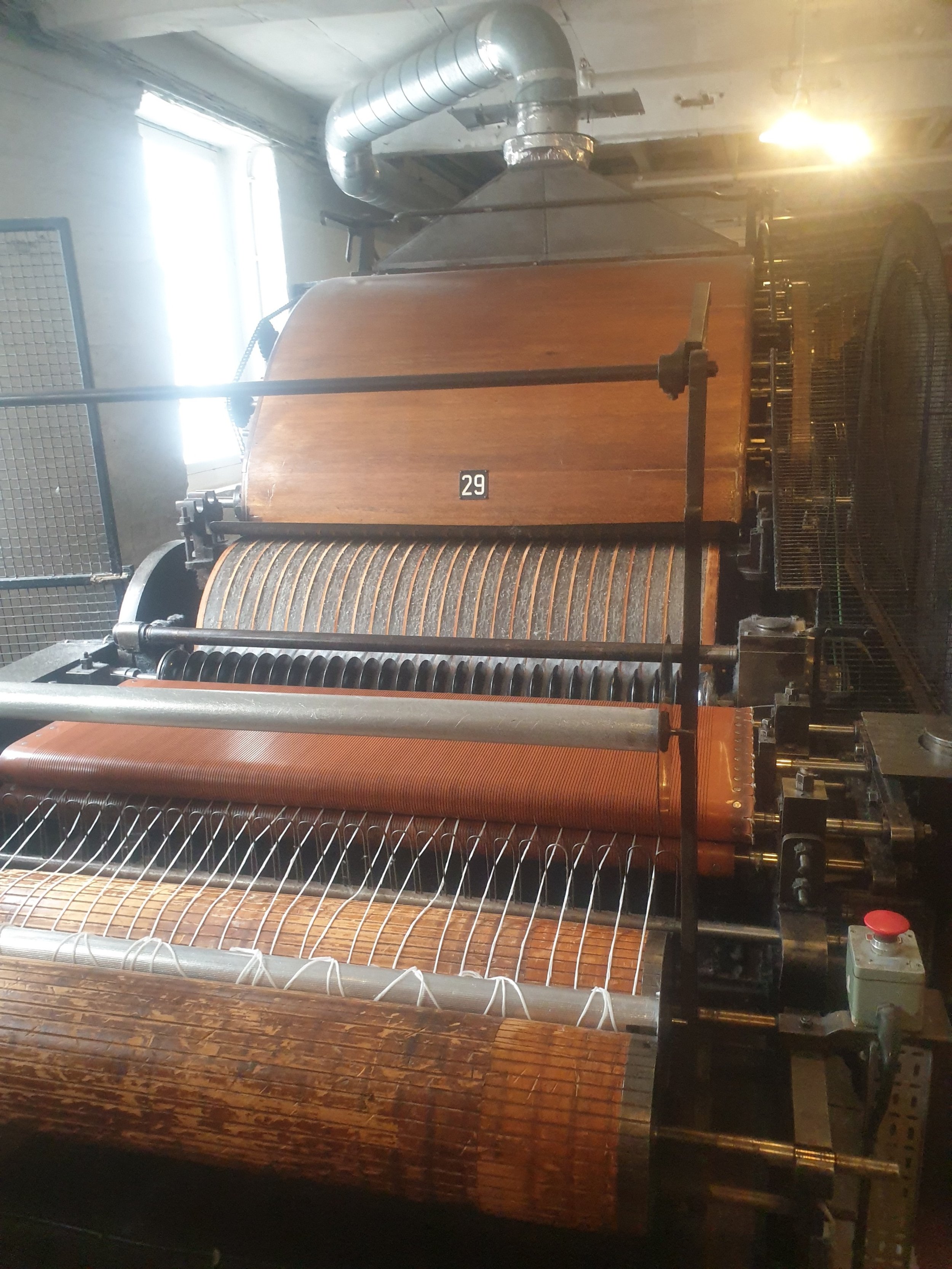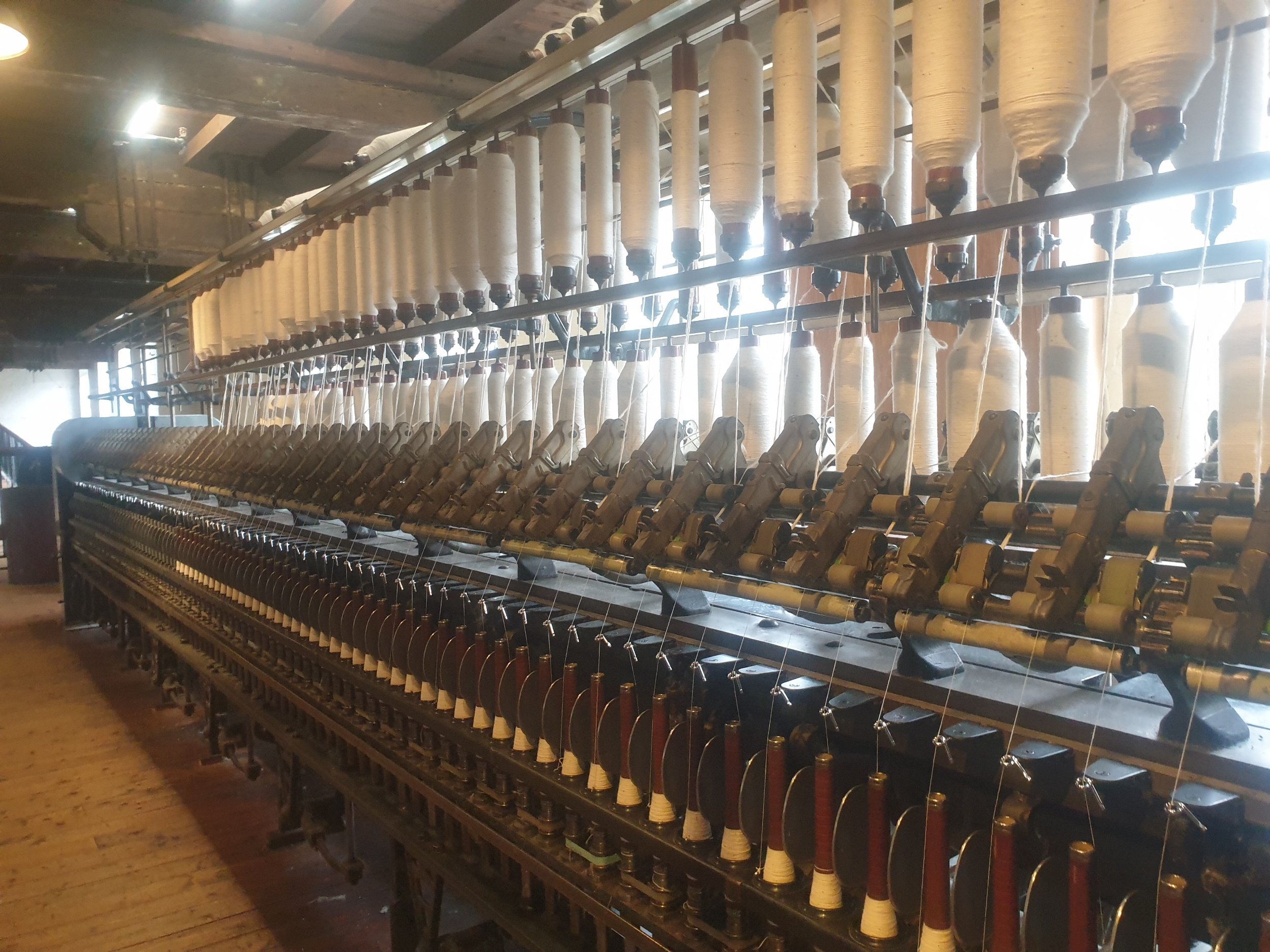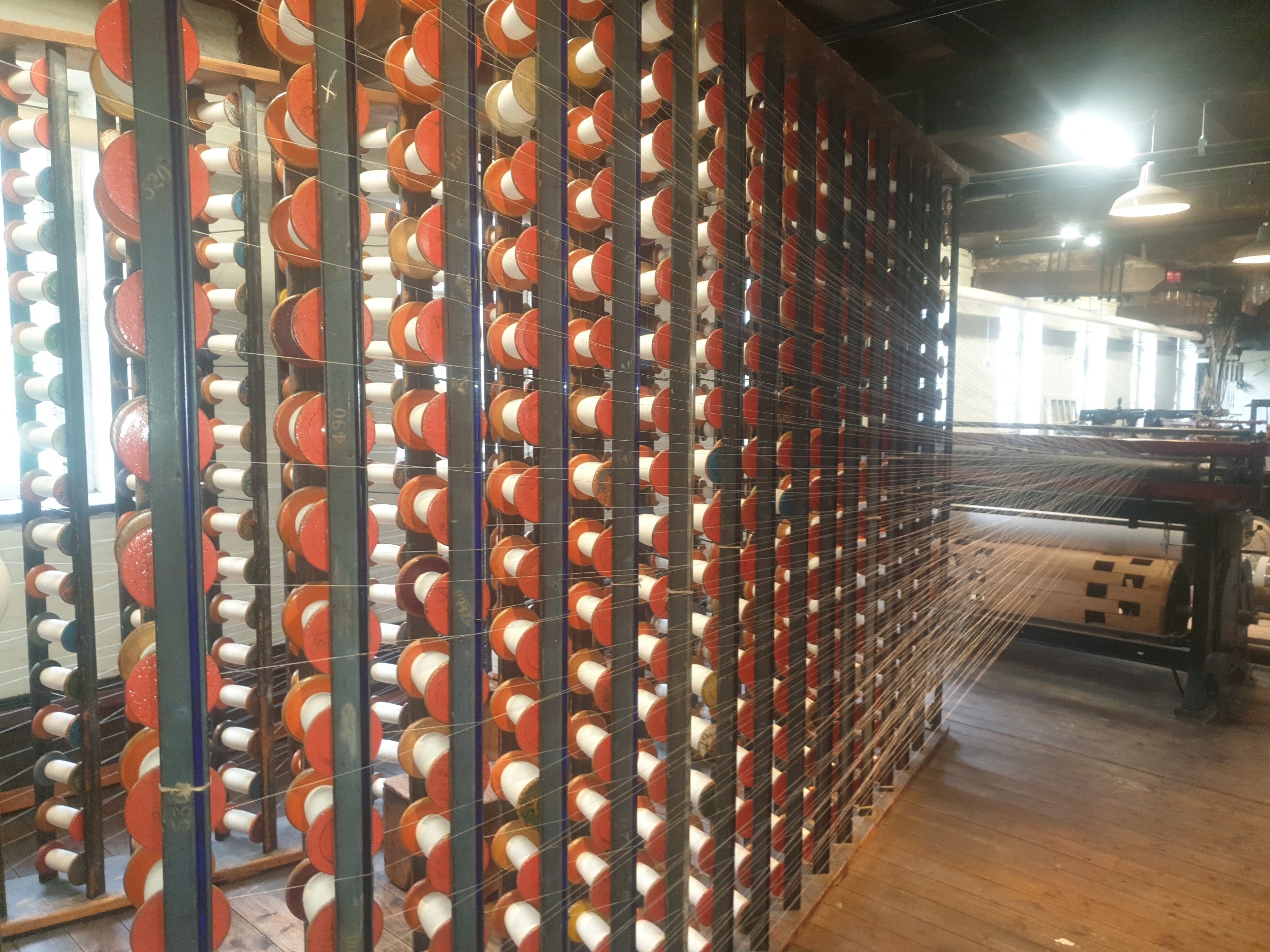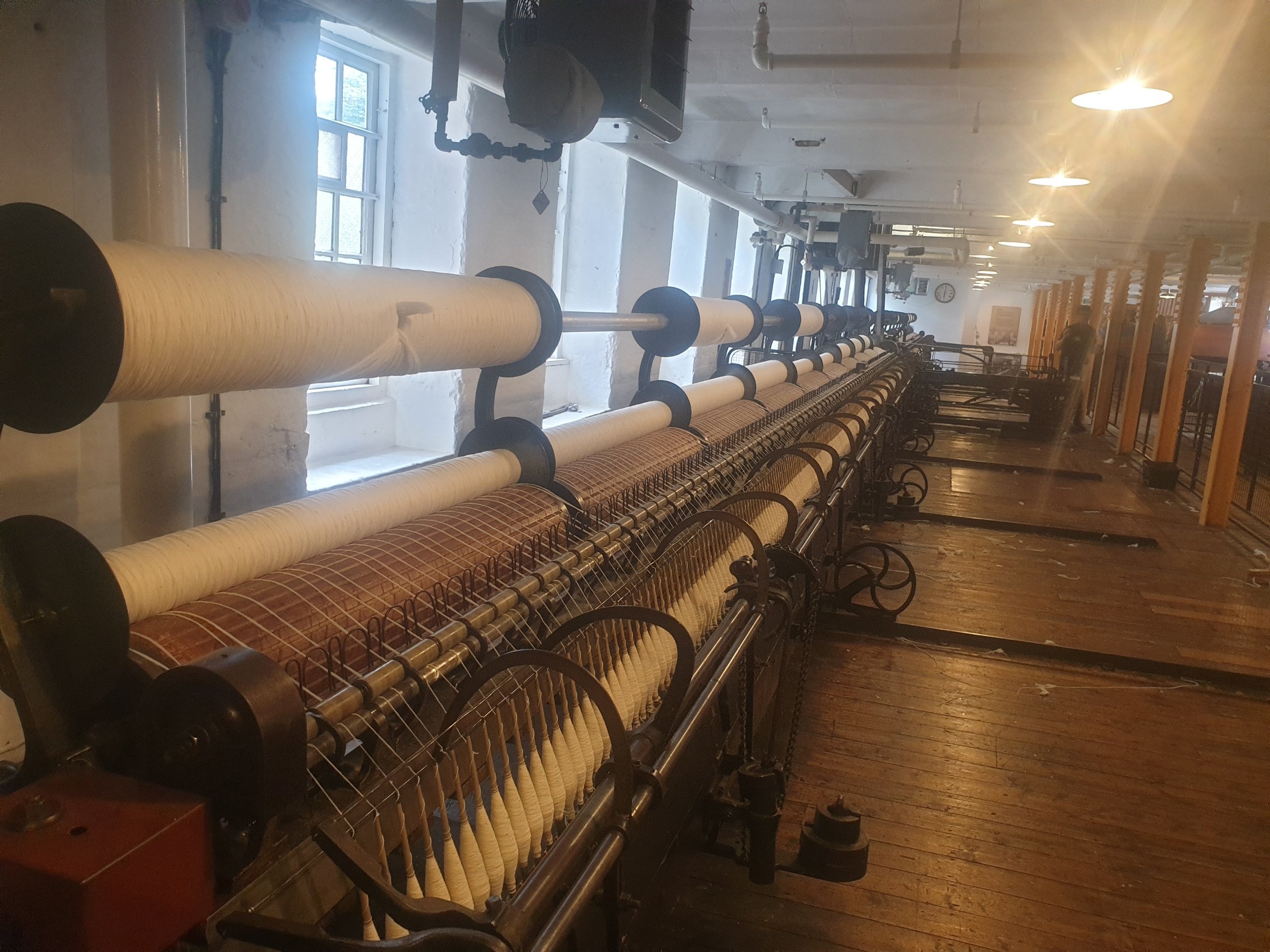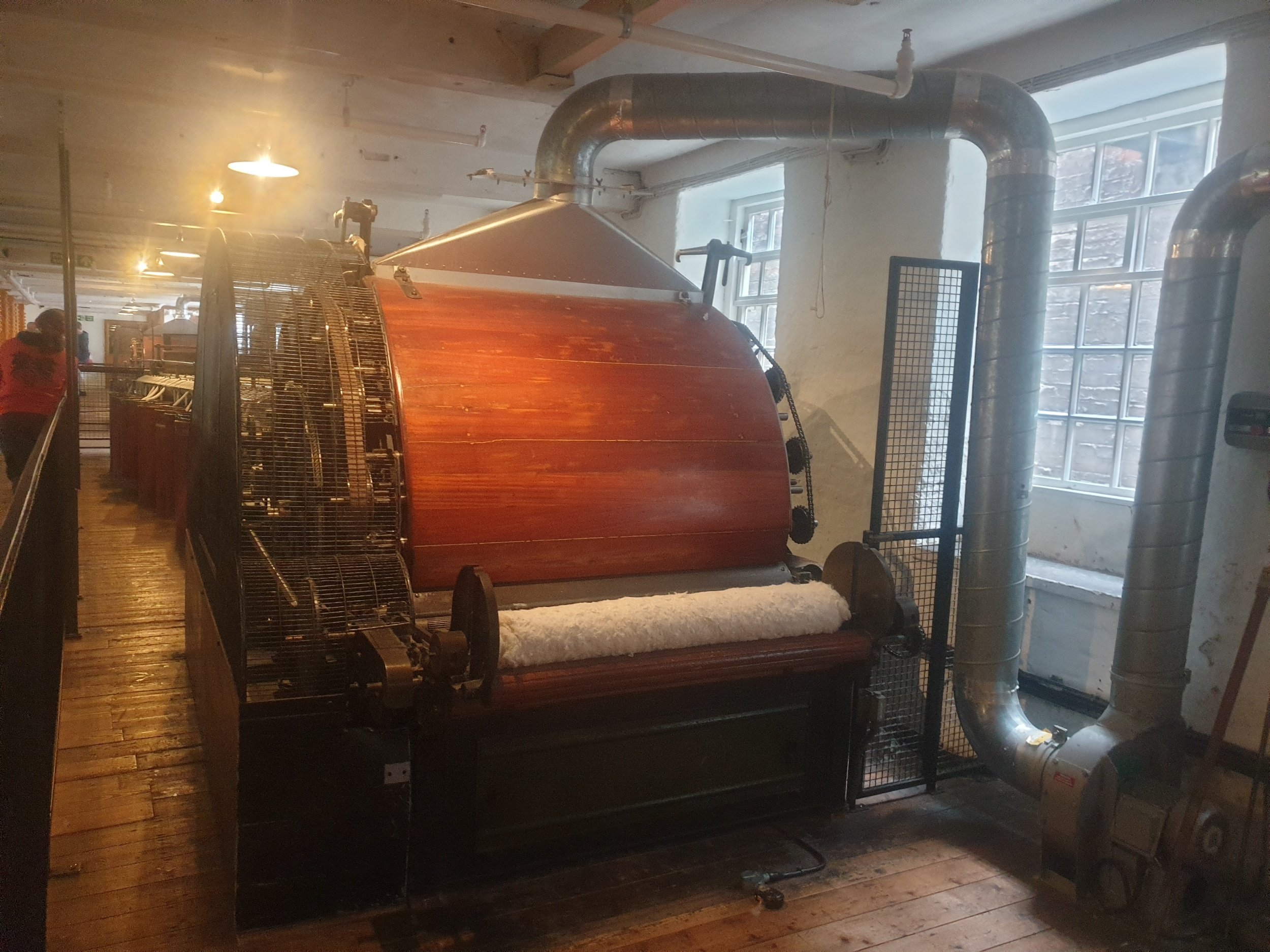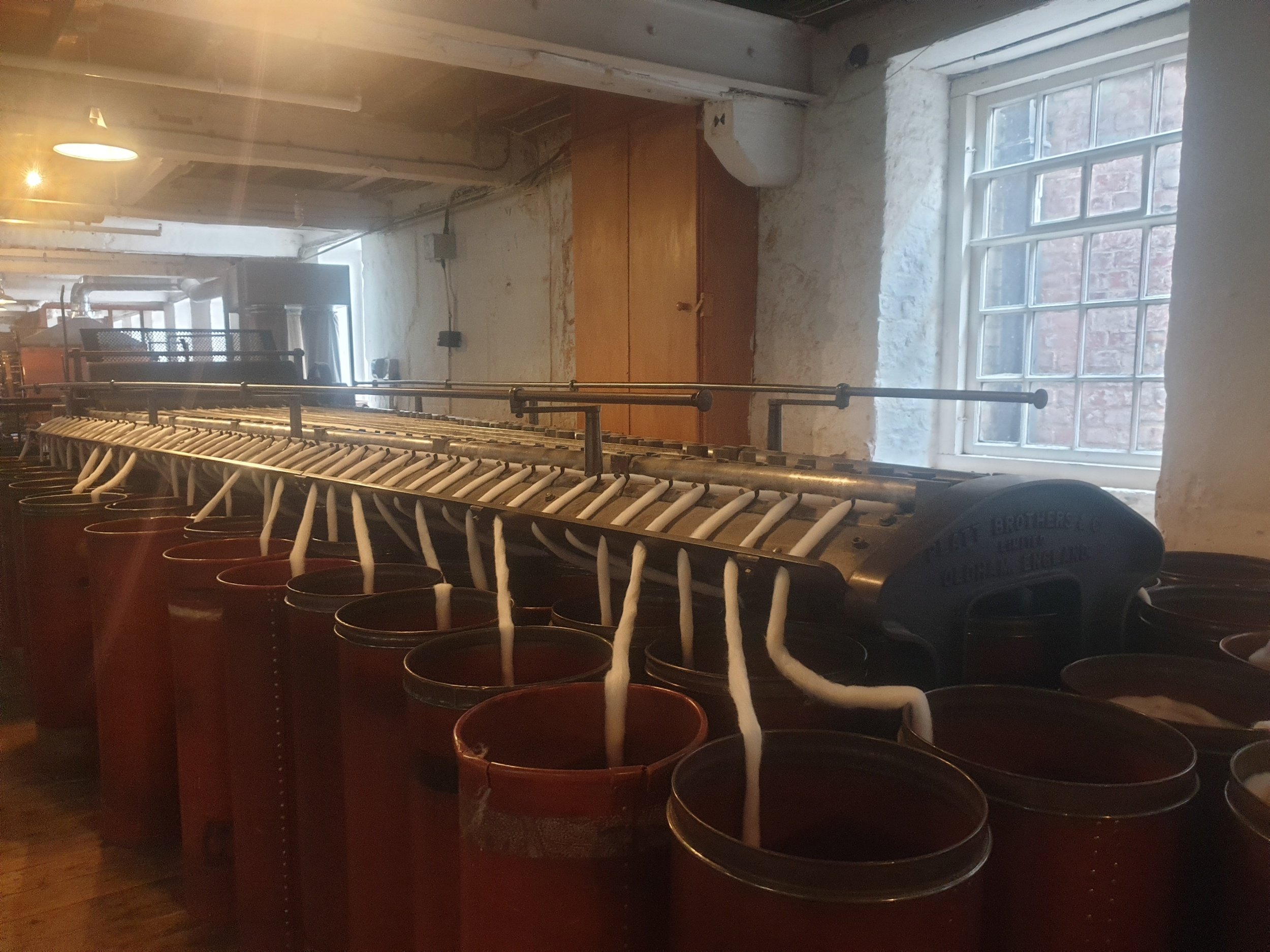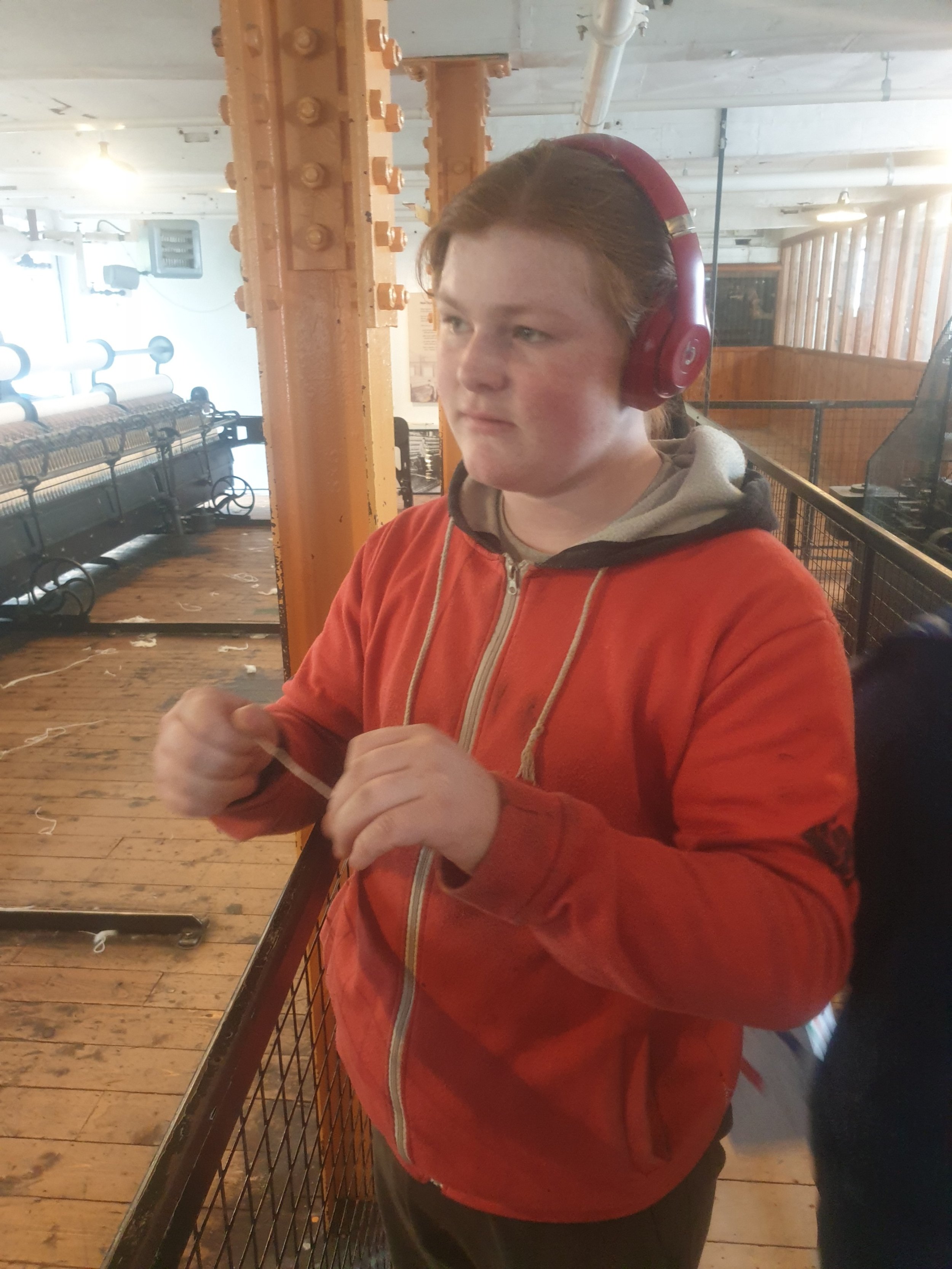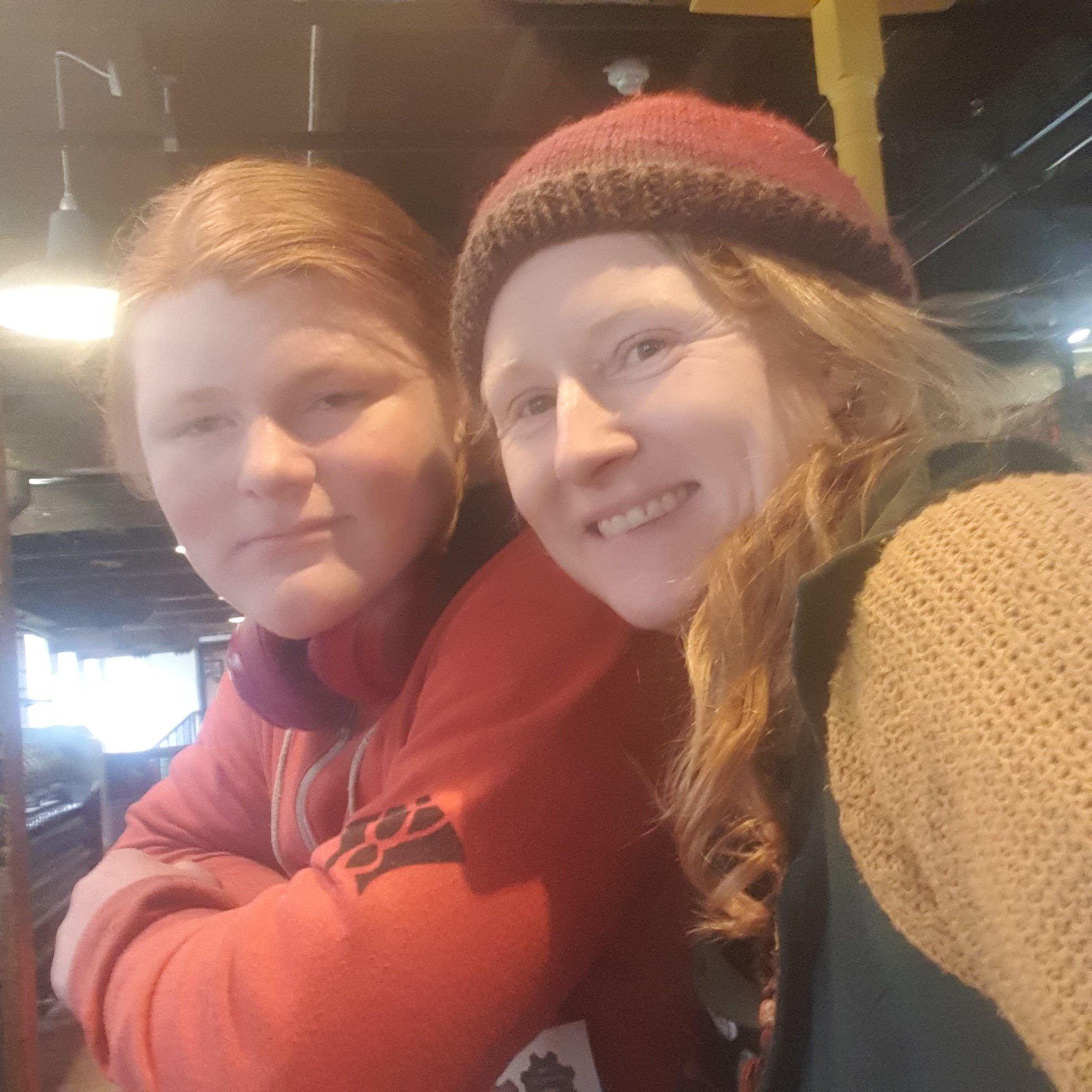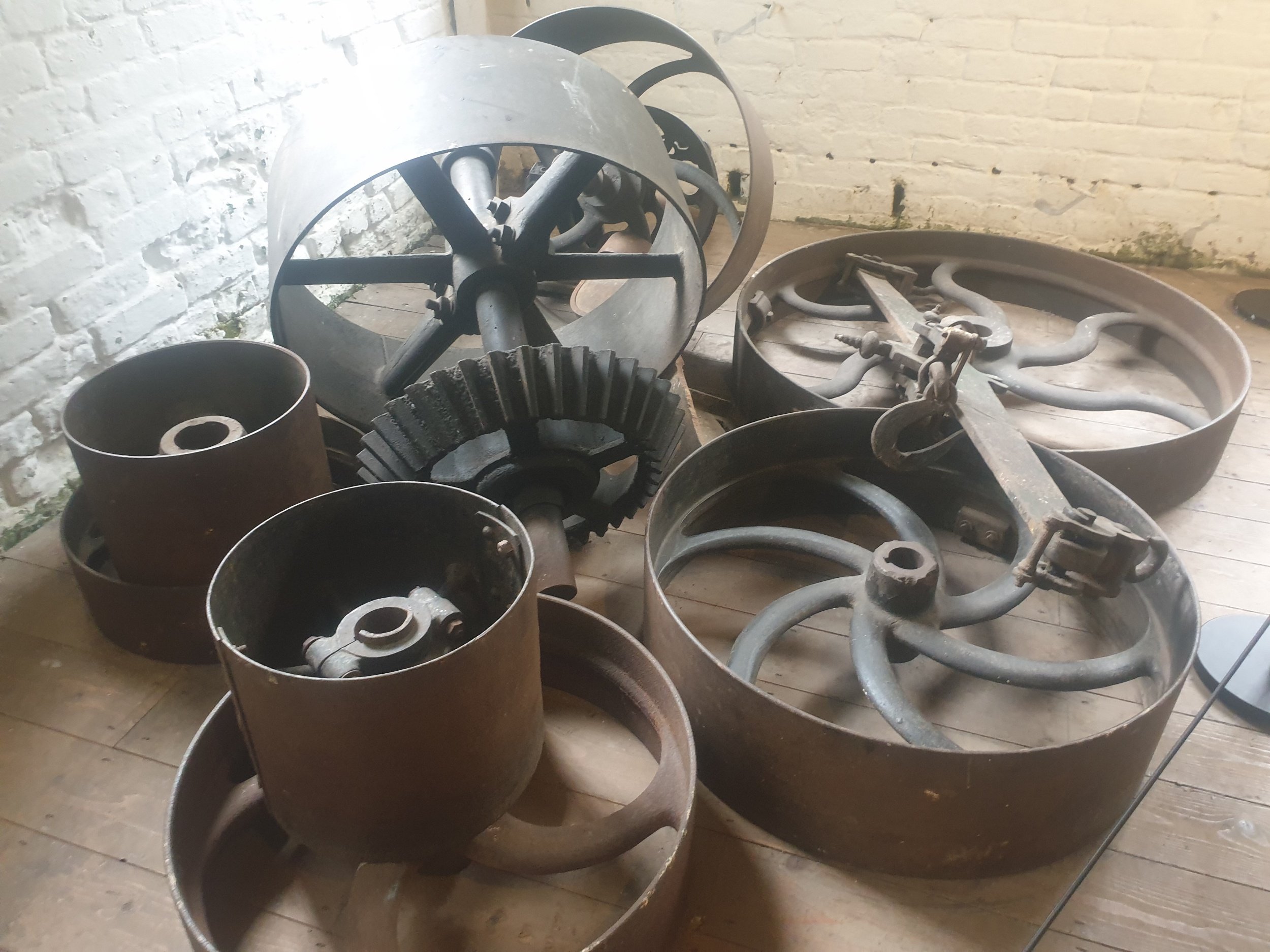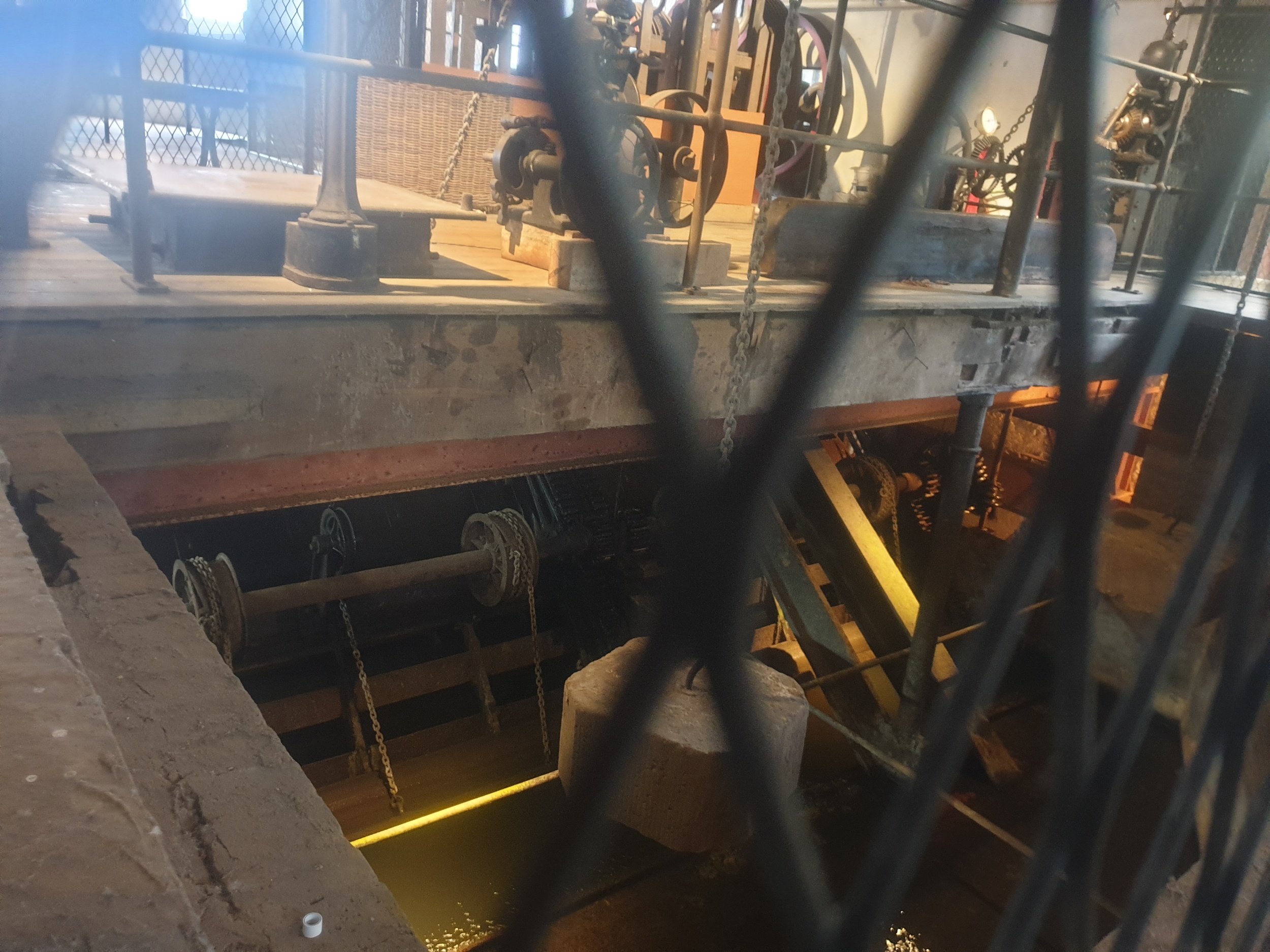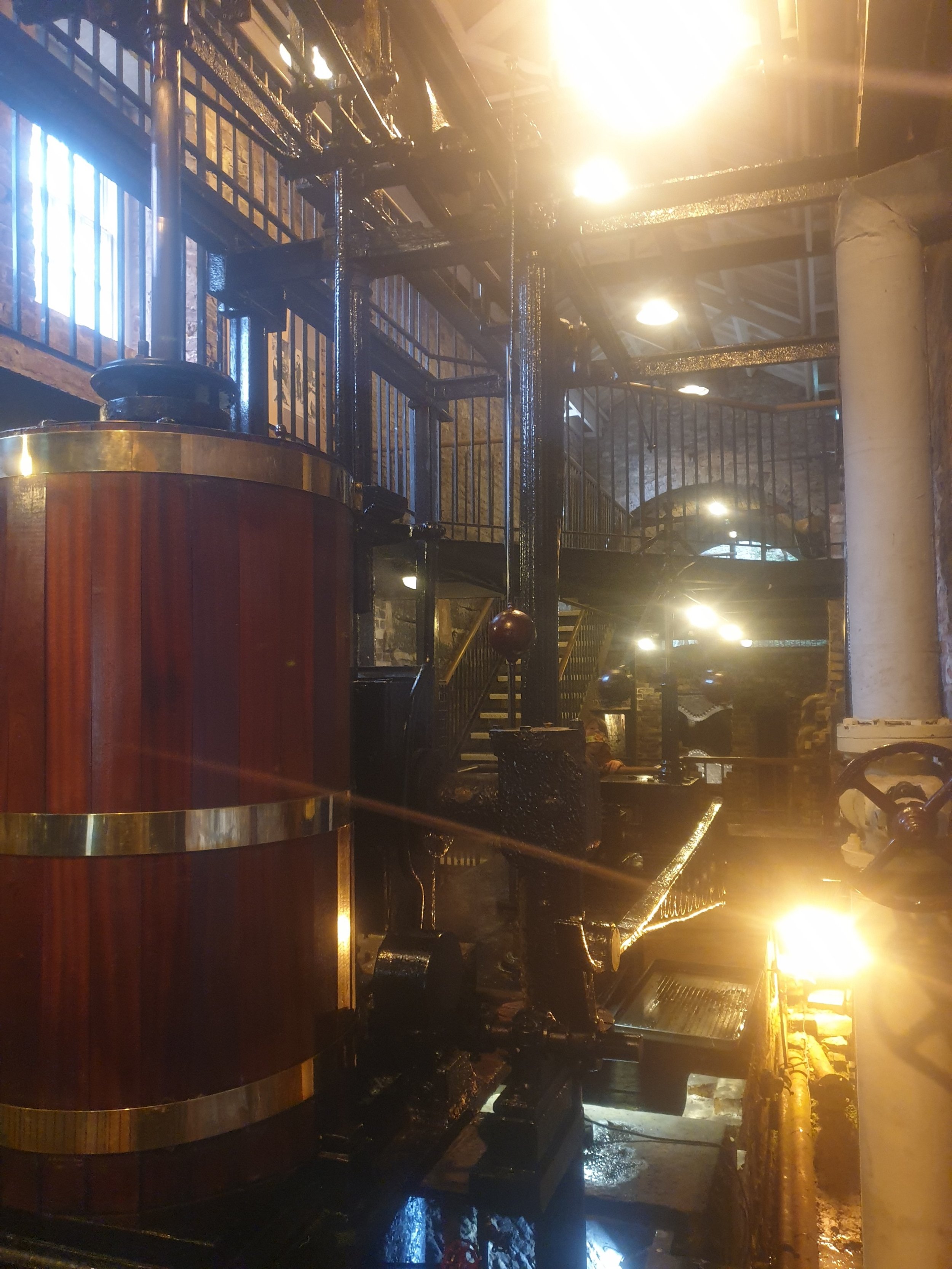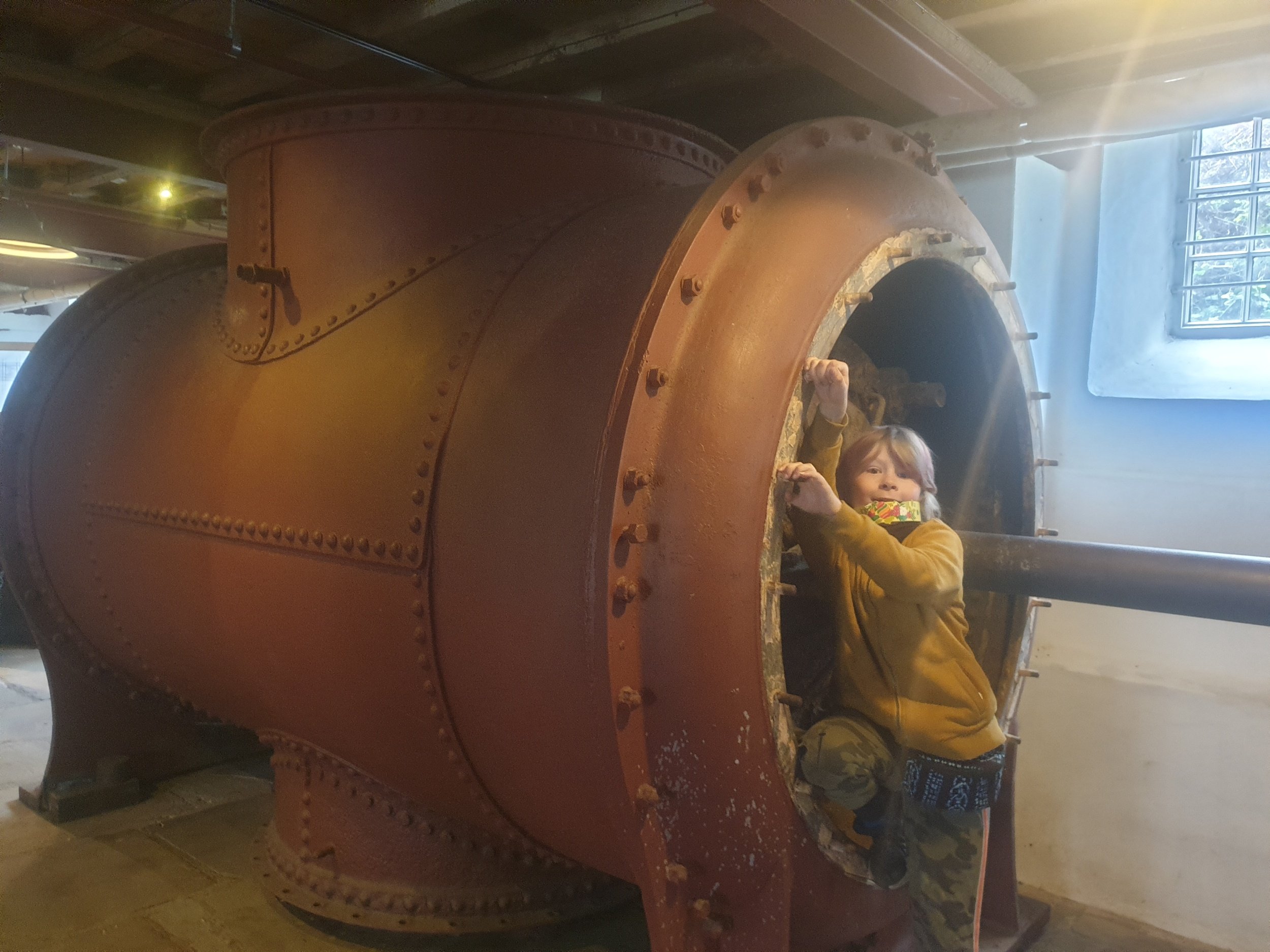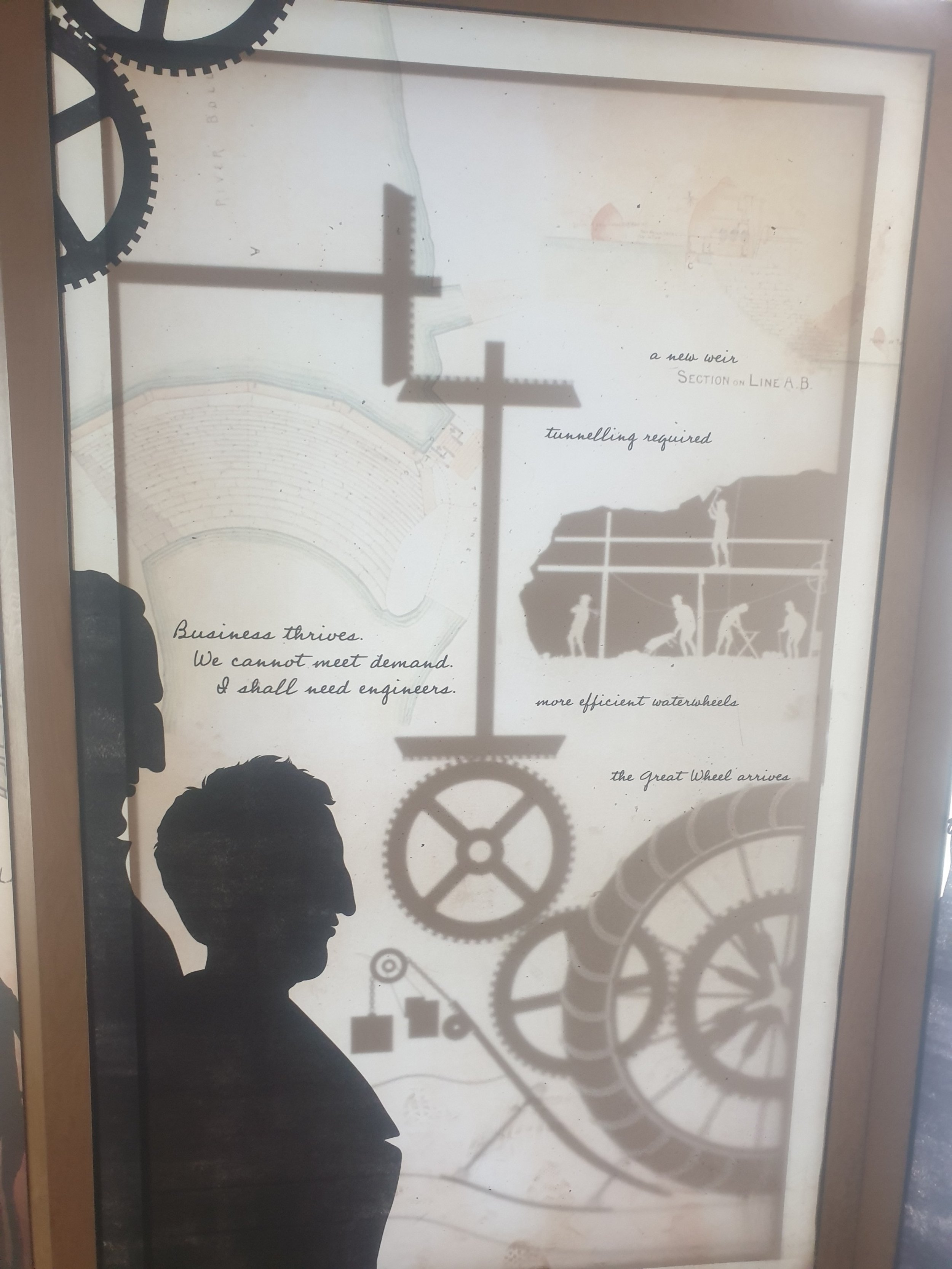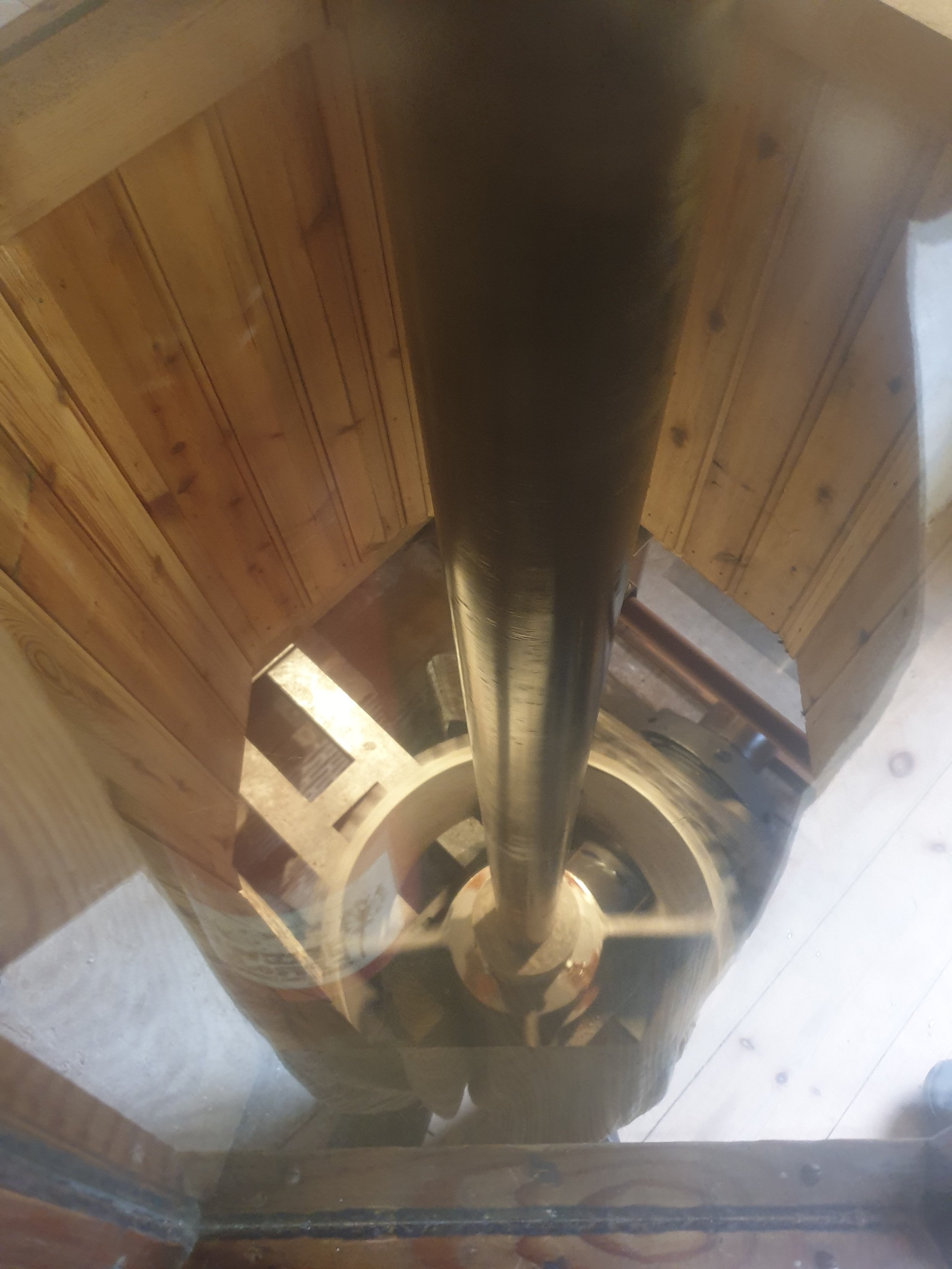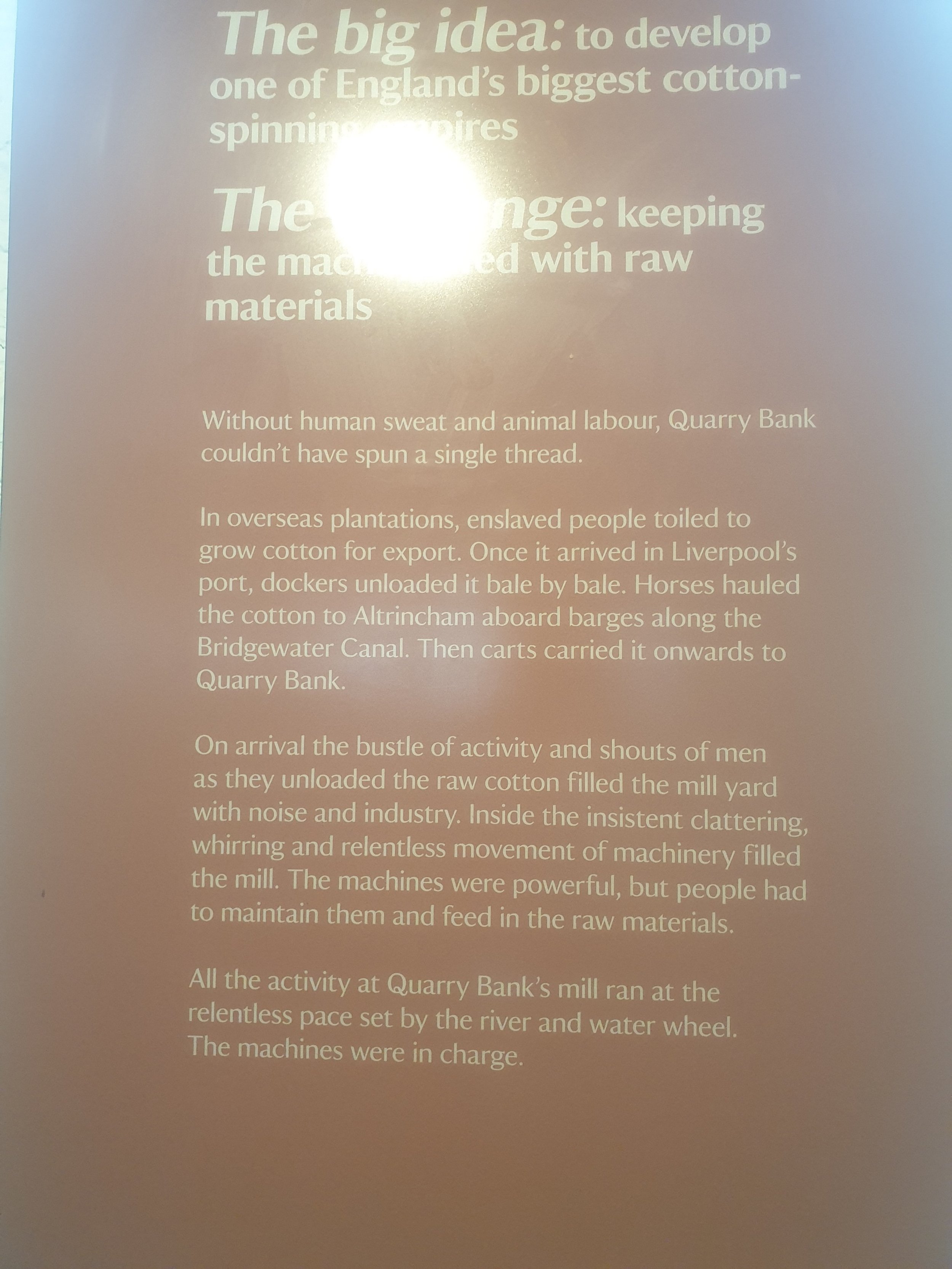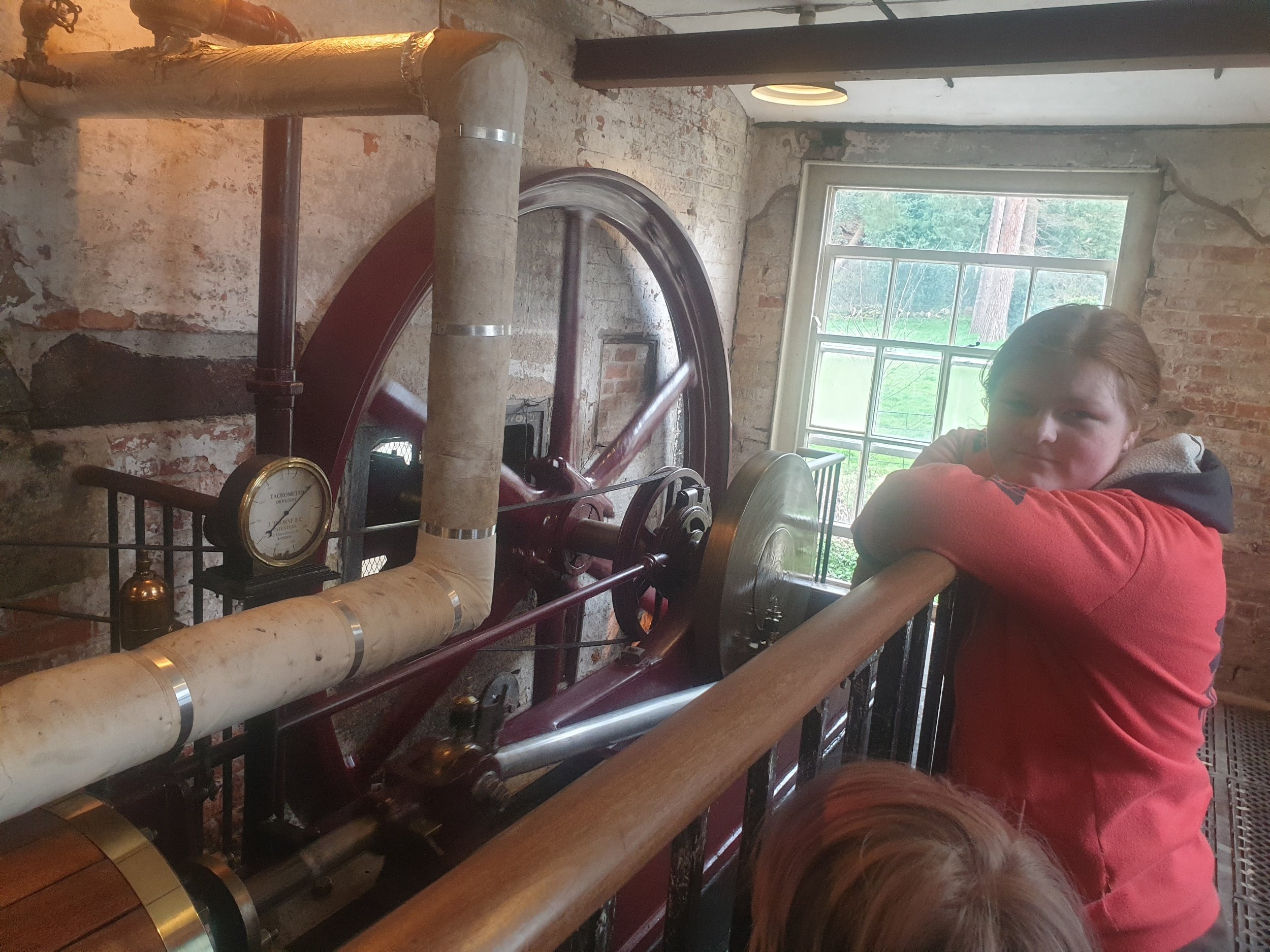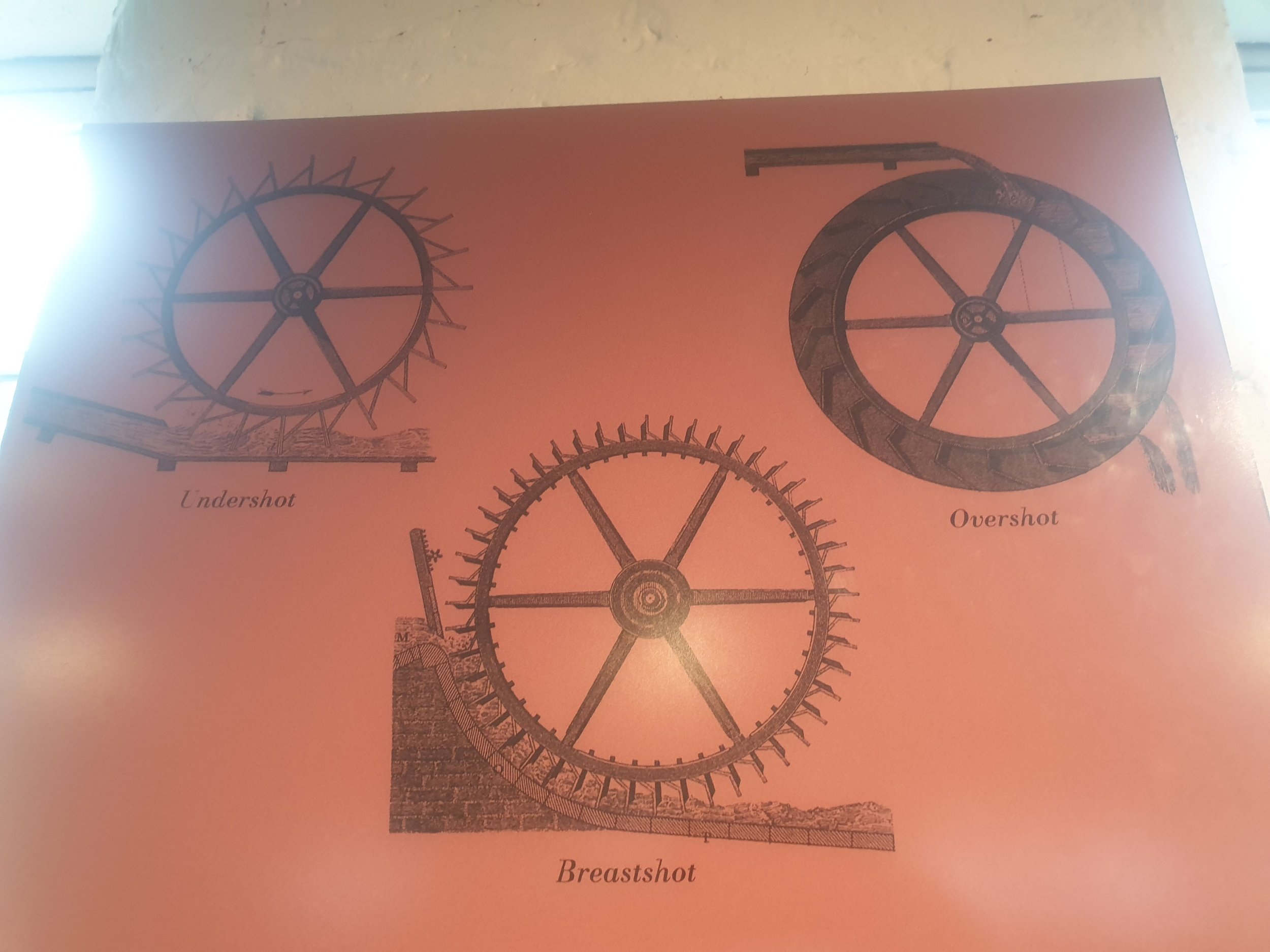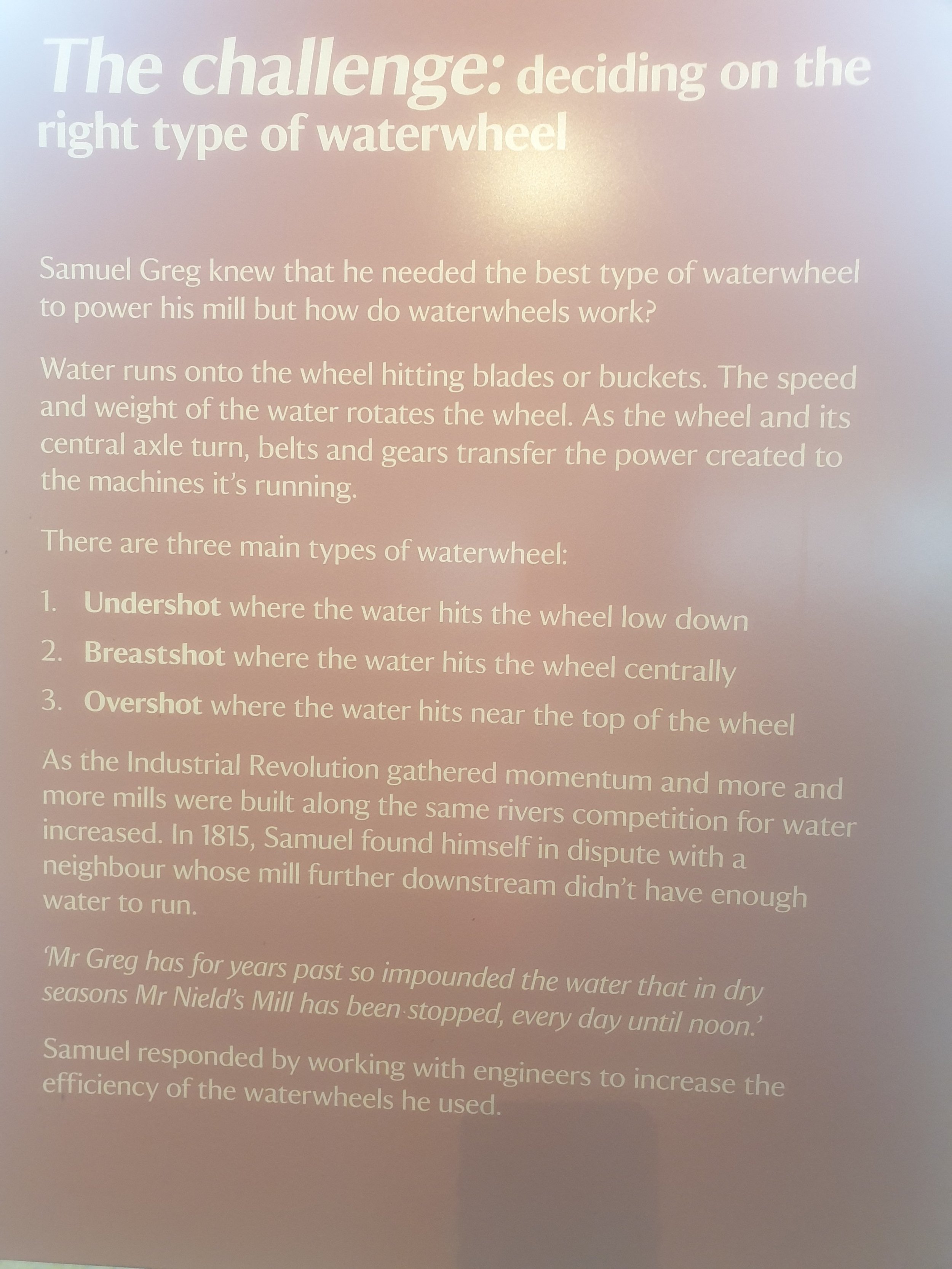Textiles & Slavery - A Trip to Quarry Bank Mill - by Emma
I wanted to share some pictures and short videos of our recent tripe to Quarry Bank Mill, a National Trust property in Cheshire in the North West.
Its quite a special place to me as it's somewhere i’ve visited on & off since being a child and a lot as a home educating, single parent of an autistic child its been an absolute saviour.
But more than that,
more than being just a nice place to hang out,
I feel the social history the place is steeped in,
tells the story of the industrial revolution so poignantly,
and how our descent into literal slaves to the machines
began
It started out as slaves to these very machines here,
such a stark shift from cottage industries and subsistence lifestyles into the factories and the towns and cities.
Our livelihoods were taken in the name of progress
- more, better, faster.
But who benefitted from this new model of more, better, faster?
Certainly not us, the peasants, the workers, the children
- and I’m not convinced the upper classes were any better off either
- not the women at least
- so perhaps just the upper class men….
Despite all this I never get bored of seeing the truly amazing, totally awe inspiring, precision engineering that took place here, in just the last 300 years - just a blink of an eye for such profound societal changes to have taken place across the globe, as a result of THIS amazing technology - it’s easy to see how standards of living were forgotten - with the promise of a new era. Surely with such clever technology all woes can be healed?
Did these men understand at the time, just how much they were shaping the very fabric of society? Was it even them personally to blame? I think not, as the evolution of our species was already on the track of progress, so that if it hadn’t of been these particular characters, then it would have been someone else, somewhere doing the same eventually……
Its such a juxtaposition of emotions, both absolute awe at the precision engineering, and absolute horror at it’s effects on most people’s living standards, as a few began to get very rich on the back of slavery, both children, female and male workers, and all of the black slaves abroad on the cotton plantations. As a species how we push towards new inventions with such arrogance & never a thought to the impact.
The Amish communities in USA apparently do accept new technologies but consider very carefully whether their lives would be improved by them.
I like this notion, its one aspect of community I would definitely like to adopt - limited technology - especially around children!
Here we start the journey with carding, spinning and looking at raw cotton and how it was imported.
Also a big section on slavery and how the Gregg family profited from slavery and owned and traded with many black people on their plantations.
I didn’t take lots of pictures of the slavery exhibition, not because its not important, I kind of regret it now, I most excited to share the machines on the factory floor with our textiles teachers.
Jake, my 14 year old read out this passage and we reflected on how it would be if he was stolen away and made a slave. He said he would refuse to work and run away. So we talked about how then he would have been whipped and tortured until he complied- but actually his stubborn autistic brain is probably the type who would have risked death, or would rather have died in the trying to be free (and mine too to be fair, and i’ve spent most of my life stubbornly taking my own path of trial and error, in a quest for freedom - its not always easy, but forever grateful i’ve not been whipped for my crimes of non conformity)
And here we go onto the factory floor….
Thinking about life would have been like for the workers here - but these workers had it easy compared to what was happening outside in the towns, cities and in the countryside. It had become such a harsh existence and so difficulty to just survive, that people here were lucky to be fed, and paid at all….
Fascinating to see the machines in action here - one can understand the term cotton ear after spending just a few minutes - but again the precision engineering is an absolute marvel….
And a tribute to the workers, I love how the social history is woven throughout marvelling at the technological advances. Something to really ponder on and hopefully learn from.
It absolutely marvellous to see how the movement from the waterwheel was carried up to the factory floor to make the machines work.
Absolute ingenuity!
Autistic brains seem to be drawn to things that go around - ie. wheels!! Jake has always been obsessed with them, and at 3 ended up with a trainspotter DVD - hours of train footage that he would sit watching intently, a life saver ha ha ha!!
It got me musing that these engineers of the industrial revolution must also have been somewhat neuro-diverse, whether ADHD / ASD or both - with the hyperfocus and brilliant creativity, logical thinking and perseverance to see these ideas through to the end (and a lack of understanding of social impact)
Anyway here are a few little video’s of how amazing it is - and how hypnotised Jake still is by that beautiful round motion!!
Keep scrolling down for the section of the health of the workers, and especially women’s health in the factory….
The health of the women and workers
It was great to see a new exhibition on the top floor about health, I skipped over some parts as time is always limited when you have 2 lively kids to follow!
I was most interested in the women’s health section so jumped right to that.
It is always fascinating to get a window, however small, into the women’s lives of a different era.
And really shows how this new lifestyle forced upon us, disadvantaged us all so badly - including women.
I reflect on how the health of people at this time in history is used scare us into accepted prophylactic pharmaceutical medicines,
when improvements in lifestyle and diet can do so much to benefit overall health and immunity,
without any dangerous side effects.
Womens health, and overall health was terrible during the industrial revolution.
In towns, cities and places where people were not able to keep themselves clean,
deal with large quantities of waste and were certainly not well nourished,
were worked into the ground physically and emotionally
- it can’t have been a pleasant time to be alive,
and some of the trauma of this time is what we are still living with and working through today.
Out in the countryside human waste can be composted,
and houses kept clean and free from rats and other vermin.
Anthropology tells us that our hunter gatherer ancestors could meet all of their needs
for food / shelter / water in around 4 hours per day
- the rest of the time was leisure, learning, storytelling, playing, socialising…. A simple existence in balance with nature. We never took too much - just what we needed.
Did those first farmers know they were setting us off on a path that led to this when they set out on the route of convenience and comfort?
Statistics show that most communicable diseases and indeed perinatal mortality rates had ALREADY
drastically improved with the improvements in living conditions throughout the early part of the 20th century,
as better sewage systems, clean drinking water, and there was less overcrowding.
Even before the mass introduction of antibiotics and vaccines
(Not to say that there aren’t benefits with those advances, but there are well documented, serious risks too)
So there are serious questions about the necessity for being in hospital to birth a baby,
or for so many vaccines to be given to such young babies.
But theres already so much information out there about this
- it’s just something that i reflect on as I read all of this!
Check out Dr Jayne Donegans work if you want to know more about that, she personally sat and went through the archives and found startling statistics which showed the trend improvements in death rates from childhood illnesses improved by around 90% before any vaccines came on the scene (don’t quote my figure, but do go look it up!). The GMC then tried to strike her off as a GP but couldn’t because her research was so well done. Still they tore her life apart for a number of years whilst she fought to clear her name.
She’s an absolutely remarkable woman, I organised a talk with her for the Arnica parents group I used to run in Manchester, she also talks about how to properly manage childhood illnesses, but anyway that’s an aside!
Child Slavery
Another new and poigniant section here with some spoken stories to listen to. Both boys listened to stories of 11 & 14 year old boys who ran away to London because they hated the mill so much.
One wasn’t allowed to take part in the evening time lessons that happened because his apprentice master forced him to do overtime 4 nights per week - on top of the 12 hour days already worked for a pittance.
He managed to save up a shilling and they set off to London, spending couple of pennies a day, sleeping in barns and made it in a week! Not bad going, but they ended up in a workhouse and wished they were back at the mill…. But we don’t find out of they made it back - perhaps not - being at the mill was seen as a privilege and they only wanted obedient hard workers.
Just really makes me think how hard life was then.
Whilst we are still slaves to the system, and there are many modern day slaves still in similarly appalling conditions around the world, child workers in the sulphur mines, Chinese factory slaves performing the same menial task over and over thousands of times per day and the clothes makers in India, Pakistan, and the workers in Saudi Arabia, sugar plantations around the world, and the gang warfare over avocados.. many many more, these are just the ones i’ve read & watched about and spring to my mind often & what keeps me out of shops like primary, and away from supermarkets as much as possible….
My personal quest to not be part of a broken system that enslaves me to enslave other people hidden from sight whilst we all believe we are entitled to this privilege.
Yes we are all hypocrites to a certain degree it’s not easy to be conscious of all the atrocities around the world, conscious of the systems of oppression we are a part of whilst understanding that taking on too much personal guilt is completely anti productive - its another trap & myth perpetuated by the elites to keep us from realising that they are the ones who are causing the problems and have the actual power to change.
Mechanical stuff & Water Wheel in Action!
Keep scrolling to the bottom of the page….
And that is the end of the trip.
Thanks for reading and coming on this journey with me!
I highly recommend a few days out at Quarry Bank Mill, there are some amazing walks around the place & gardens,
and also walks into style mill too, but I wanted to focus on the mill and the effects on our lives
- since this is what we, at The Rewild Project want to partly undo - we want to RE-balance the power dynamic.
Get people BACK ONTO THE LAND.
We want a way to live a subsistence lifestyle again. A way to be IN BALANCE with humans and nature.
Part of the landscape.
We know it is possible, with old & new RE-generative agricultural techniques:
Using Biochar / Agroforestry / Alley Crops / Keyline ploughing on contour
And CRAFTS PEOPLE
We have a plan to make this happen
Good governance underpins healthy community
We need to move away from systems where a few people hold the power to make decisions.
Systems where people are infantilised, looking to ‘land-owners’ for their grace of ‘letting’ them reside there.


